Actualités
IMMERSE Dashboard of Indicators: co-created data made accessible
One of the concerns of the IMMERSE project from the beginning was how to make the project results accessible and useful for all the stakeholders. Reaching the final [...]
IMMERSE project closing and partners commitment
The IMMERSE project is reaching the end of its journey. In these five years of hard work, you have witnessed the integration of research results from the IMMERSE [...]
Unlocking Pathways to Integration: Highlights from the IMMERSE Project’s Conference at the European Parliament
On November 6th, the greatest dissemination event of the IMMERSE project took place at the European Parliament premises, in Brussels. IMMERSE team joined H2020 project REFUGE-ED in this conference, [...]
Project results and policy recommendations at the next IMMERSE event in Athens
Panteion University – the oldest university of social and political sciences in Greece – presents the results of their IMMERSE research in an event on November 20th. A [...]
Recap of the lastest IMMERSE national dissemination events
Since our first national dissemination event in Cork, Ireland, a whirlwind of events has swept through this October. We've summarized them for you in this post. Our colleagues from [...]
L’approche de co-création IMMERSE: Modèle de participation de Lundy
L'équipe IMMERSE a utilisé le modèle de participation de Lundy pour informer les activités de co-création avec les enfants, y compris les activités avec le groupe consultatif de recherche [...]
Sharing insights on inclusion of migrant and refugee children in Spain on October 26th
The University Institute of Studies on Migration (IUEM), established by Comillas Pontifical University in 1994 as a specialized research center to address the complexities and the political and social [...]
L’approche de co-création IMMERSE: identifier et évaluer les bonnes pratiques inspirantes pour mon école
Les écoles, en tant que principaux environnements éducatifs, et les enseignants, en tant que principaux acteurs éducatifs, jouent un rôle important dans l'inclusion socio-éducative des enfants migrants. À cet [...]
Get ready to dive into the IMMERSE Project Dissemination Event in Brussels
These weeks, our schedules are filled with a series of exciting events. The next one we'd like to introduce takes place online, right from Brussels. Active Citizen Europe, a [...]
The challenges of minors inclusion in Italy will be presented at our upcoming IMMERSE event in Rome
Save the Children - the international organization that has been fighting for over 100 years to save children in danger and ensure them a future - presents the results of [...]
IMMERSE & REFUGE-ED Final event at the European Parliament premises
As we mentioned a few days ago, we are currently organizing a highly significant final dissemination event that will take place at the European Parliament premises. We are thrilled [...]
Upcoming dissemination event in Leipzig on October 13th
DOZ e.V. International is hosting an upcoming dissemination event on October 13th. We will be sharing the DOZ team findings on the Immerse H2020 project, focusing on the integration [...]
Immerse dissemination events
The IMMERSE project is entering its final phase, and after our first dissemination event in Cork, in the upcoming weeks, more events will be held in the European cities [...]
University College Cork presented their research results at a comprehensive event
On September 15th, the first national dissemination event of the IMMERSE project took place in Cork, Ireland, at the University College Cork headquarters. The involvement of UCC researchers, representatives [...]
L’approche de co-création IMMERSE: ateliers avec des enfants de 16 à 18 ans
Utiliser le pouvoir : Brainstorm/Tableau Points forts Les membres du groupe peuvent reconnaître comment le pouvoir est utilisé en permanence par chacun d'entre eux et voir visuellement l'impact [...]
L’approche de co-création IMMERSE: ateliers avec des enfants de 13 à 16 ans
L'exercice de l'équipe Brick Points forts L'exercice peut servir d'échauffement pour des projets et d'autres processus de planification. Il peut également être utilisé dans le cadre de la [...]
L’approche de co-création IMMERSE: ateliers avec des enfants de 10 à 12 ans
Accord de groupe Points forts Un excellent exercice pour créer une hiérarchie plate entre tous les participants dès le début de la session. Aucune opinion n'est plus importante [...]
L’approche de co-création IMMERSE: ateliers avec des enfants de 6 à 9 ans
Accord de groupe Points forts Un excellent exercice pour créer une hiérarchie plate entre tous les participants dès le début de la session. Aucune opinion n'est plus importante [...]
IMMERSE data collection process is completed
We are thrilled to share a major milestone in the IMMERSE project! Thousands of questionnaires were distributed among children, parents, principals and teachers from 6 European countries from June 2021 [...]
Immerse Irish team findings will be shared at an event on September 15th
University College Cork will held an event on September 15th to share the Immerse H2020 project findings on the integration of migrant children in the Irish education system. The event [...]
L’approche de co-création IMMERSE: outils de base de la facilitation – bienvenue et adieu à la facilitation
Afin de créer l'ambiance de l'atelier, il est important d'ouvrir la session de la bonne manière. Ainsi, l'animateur doit s'affirmer en introduisant la session et en expliquant l'ordre du [...]
L’approche de co-création IMMERSE: outils de facilitation de base – planification de l’activité d’engagement
Paramètres Lors de l'organisation d'ateliers, tous les animateurs doivent garder à l'esprit les points suivants : Préparer soigneusement la salle et penser à une atmosphère accueillante. Préparez un espace [...]
L’approche de co-création IMMERSE: Outils de facilitation de base – formats de participation et d’engagement
L'un des objectifs d'IMMERSE est de parvenir à une participation significative afin de dresser un tableau complet et précis de la situation des enfants réfugiés et migrants dans six [...]
L’approche de co-création IMMERSE: Principes d’animation d’atelier
Lorsque vous jouez le rôle d'animateur d'un atelier, gardez toujours à l'esprit les principes suivants et agissez en conséquence Neutralité Notre motivation pour adhérer au [...]
L’approche de co-création IMMERSE: les principes de fonctionnement interne du projet pour l’engagement des parties prenantes
Afin de garantir une norme commune pour l'animation d'ateliers, de groupes de discussion et d'autres activités, les principes suivants devraient être appliqués par tous les animateurs, chercheurs et planificateurs [...]
Immerse yourself again! Poetry and Drawing Exhibition in schools about “Language”
The IMMERSE YOURSELF AGAIN! Poetry and Drawing Exhibition on the subject of “Language” is now live in the IMMERSE HUB. Following the success of our first exhibition about [...]
Immerse yourself! Poetry and Drawing Exhibition in schools about “Belonging”
The IMMERSE YOURSELF! Poetry and Drawing Exhibition on the subject of “Belonging” is now live in the IMMERSE Hub. Students aged 7-18, from schools [...]
IMMERSE’s response to the arrival of refugee children from Ukraine
IMMERSE was born out of the concern for ensuring that Europe meets the challenges and the potential involved in the successful inclusion of all refugee and [...]
Guiding principles for the reception and inclusion of refugee and migrant children
IMMERSE researchers have created a list of ten guiding principles, based on the results of a co-created methodology (involving children and other stakeholders) to define 30 key indicators to [...]
Online Digital Database of good practices at national and EU level now available
IMMERSE has launched its online database with more than 100 resources aimed at identifying supportive environments, educational conditions and practical materials addressed to school leaders, teachers, educators, and [...]
New educational resources available on the IMMERSE Hub
The IMMERSE Hub includes free educational resources such as lesson plans, workshop ideas, and articles to work on the topics of inclusion and migration in the classroom. All these [...]
Video tutorial on the IMMERSE Hub
A video tutorial available in English, Spanish, French, German, Dutch, Italian, and Greek explains how to participate in the IMMERSE Hub, the free platform for schools, professionals and anyone [...]
Voice4Action campaign 2021
The campaign ‘Voice4action’ has been launched on the occasion of #WorldChildrensDay 2021. The main objective of this campaign is to give voice to the IMMERSE CYPAG [...]
Latest report on psychosocial integration and well-being indicators now available
The last report on indicators of socio-educational integration of refugee and migrant children is now available. This paper is the third and final in a series of qualitative [...]
October newsletter now available!
The latest IMMERSE newsletter is now available. In it you will find information about the new educational resources available in the hub, where we are in the collection of [...]
Data collection among migrant and refugee children in Europe underway
After long delays due to Covid-19, IMMERSE has entered an exciting new phase of the project - large-scale primary data collection. This phase will be carried out for 24 [...]
Educational resources to promote integration are now available in seven languages through the IMMERSE Hub
The IMMERSE HUB makes available to teachers and education professionals working with children a growing bank of educational free access resources in seven languages. These resources consist of workshop [...]
The IMMERSE hub as a forum for discussion
The IMMERSE hub has been launched as a forum for debate and dissemination in the field of research on the integration of migrant and refugee children in Europe. The online [...]
IMMERSE publishes its dashboard of socio-educational integration indicators.
The Dashboard of Indicators has been developed by listening to the voices of migrant and refugee children, their families and those who work directly with them in schools, NGOs, and [...]
Children’s view about integration in schools
Interview 1 1. What do you like most about going to school? That we get to learn in a happy environment where teachers and students learn from one another. [...]
Teachers’ view about integration in schools
This survey has been answered by a group of 18 teachers from La Salle (Irún, Spain). In their regular classes, they have 10% of migrant students. During informal training, [...]
Short interview with a mother of migrant children
1. Have you felt integrated into this country? How do you and your children feel at school? We arrived 13 years ago. My husband and I have 3 children who [...]
Awareness campaign
IMMERSE has launched its first awareness campaign “The right to education, a tool for real and long-term integration” to celebrate the 30th anniversary of the adoption of the United [...]
Interview with UNICEF Spain
1. What does real integration of children mean for UNICEF Spain? It means that migrant and refugee children, like all other children, should enjoy “integral protection”, asstipulated by the [...]
IMMERSE Leaflet
IMMERSE project, integration mapping of refugee and migrant children in schools and other experiential environments in Europe, is a European initiative funded by the Horizon2020 Programme of the European Commission. [...]
IMMERSE implementation process
The implementation of IMMERSE project, started in December 2018, will run for 4 years following these steps: Define new research methods and tools, including new technological solutions (a digital platform) [...]
IMMERSE project: mapping the integration of refugee and migrant children in Europe
IMMERSE project, integration mapping of refugee and migrant children in schools and other experiential environments in Europe, is a European initiative funded by the Horizon2020 Programme of the European Commission. [...]

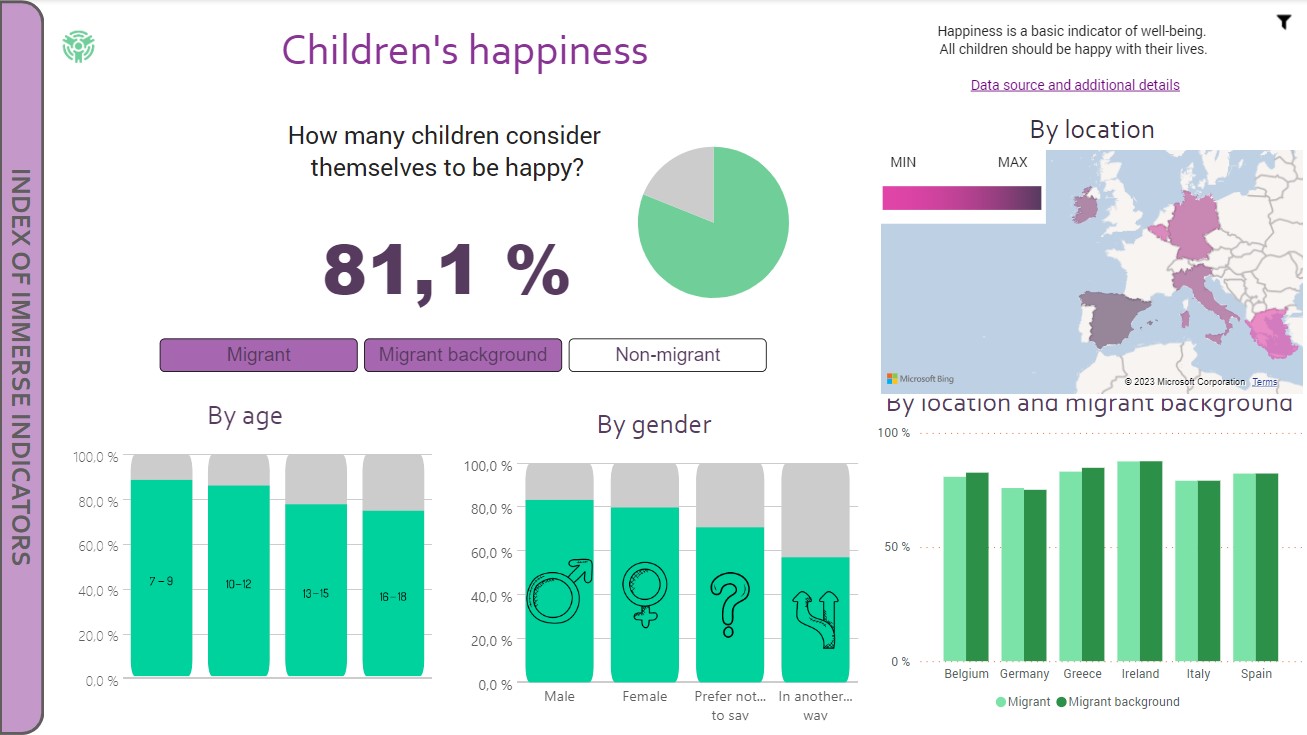
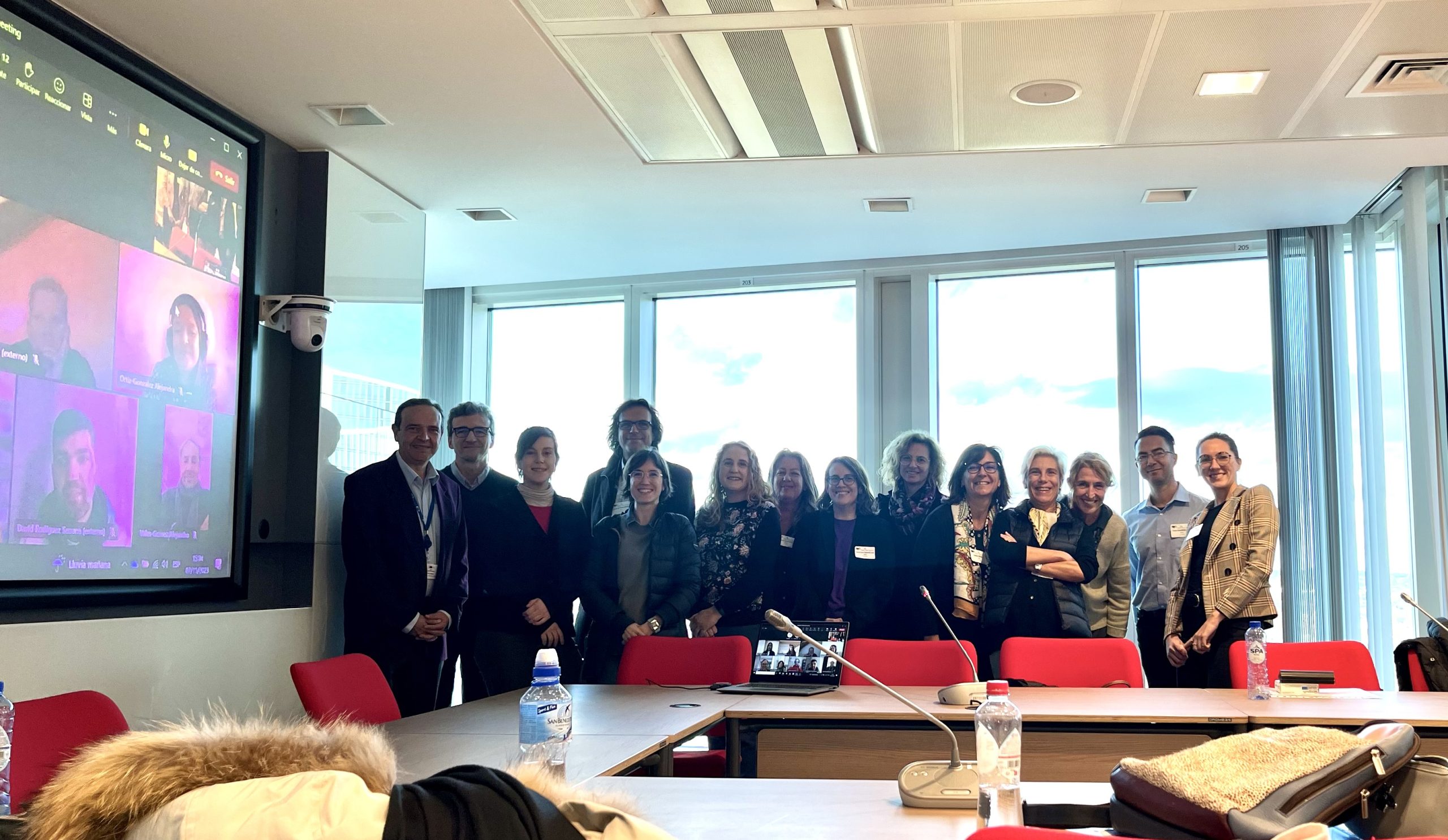
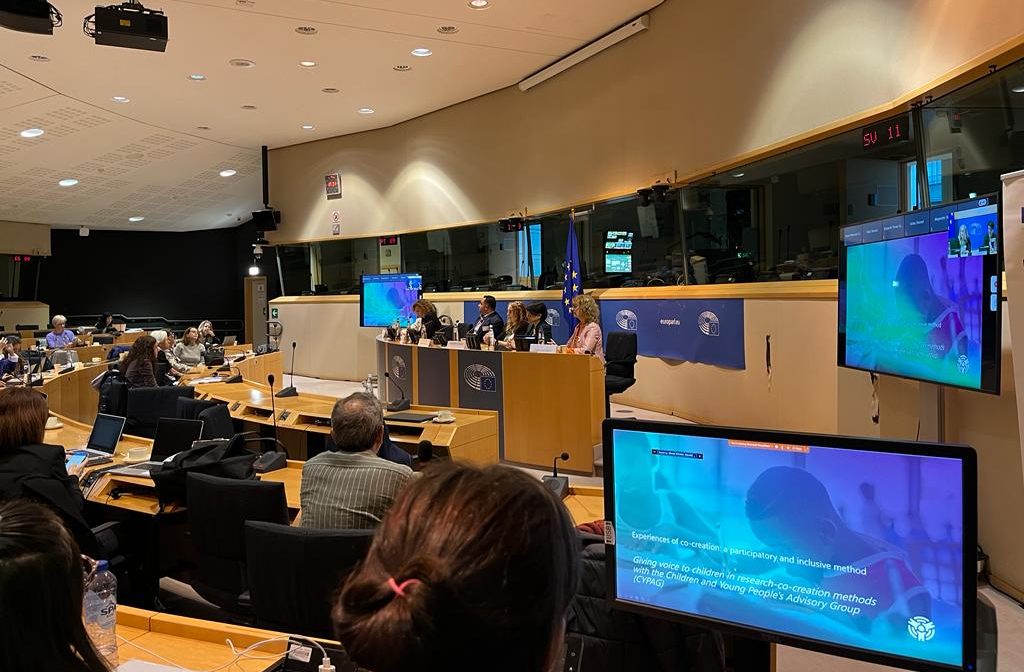
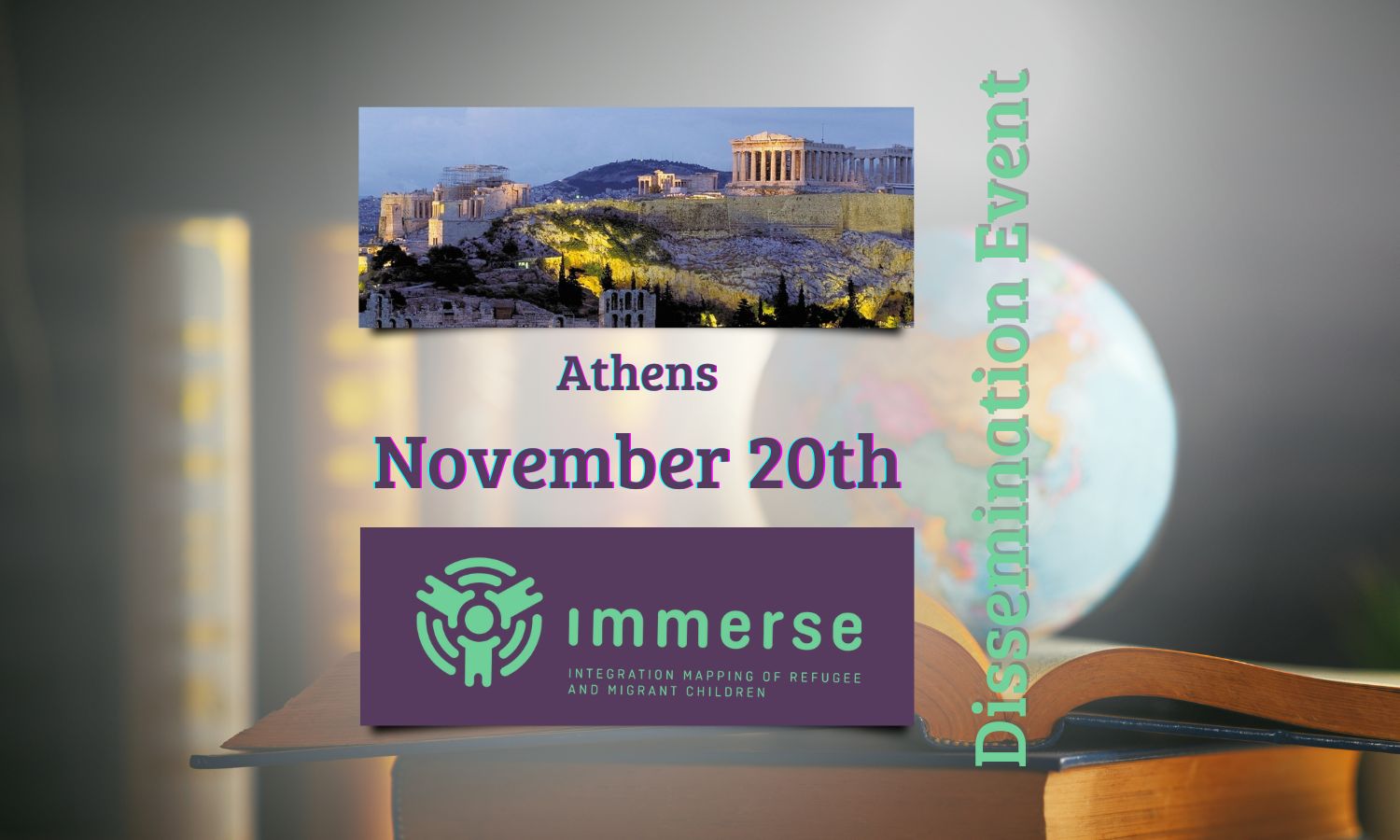
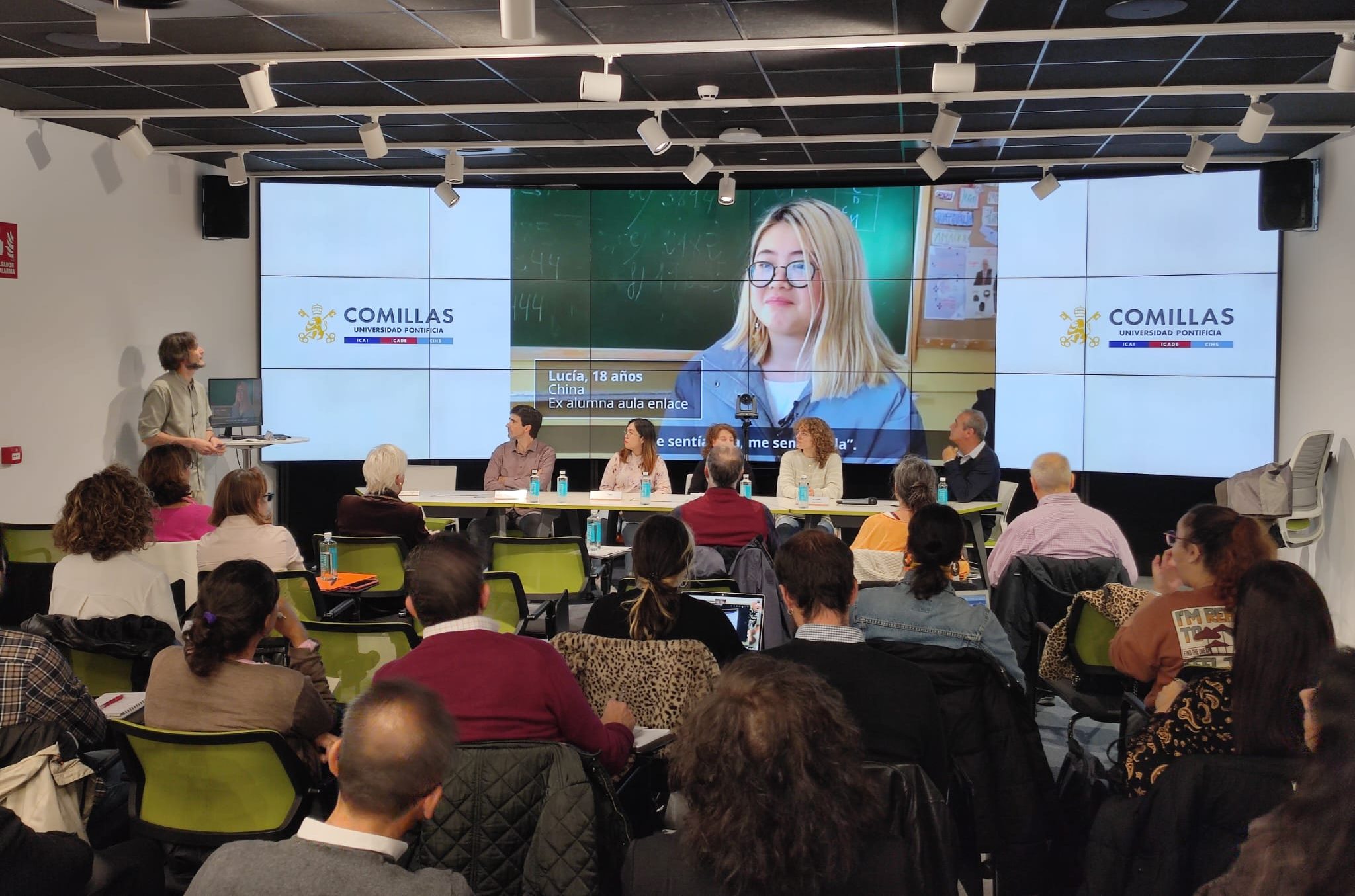
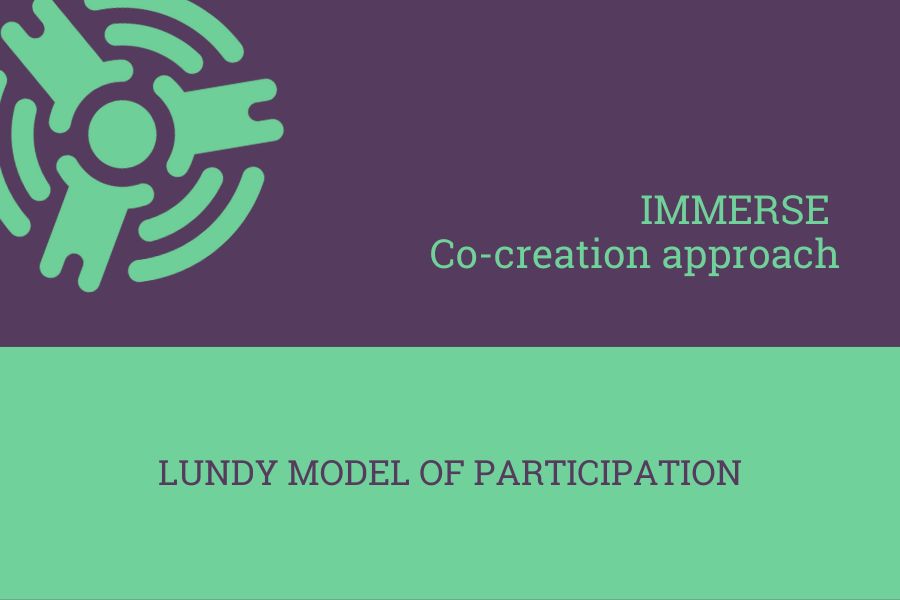
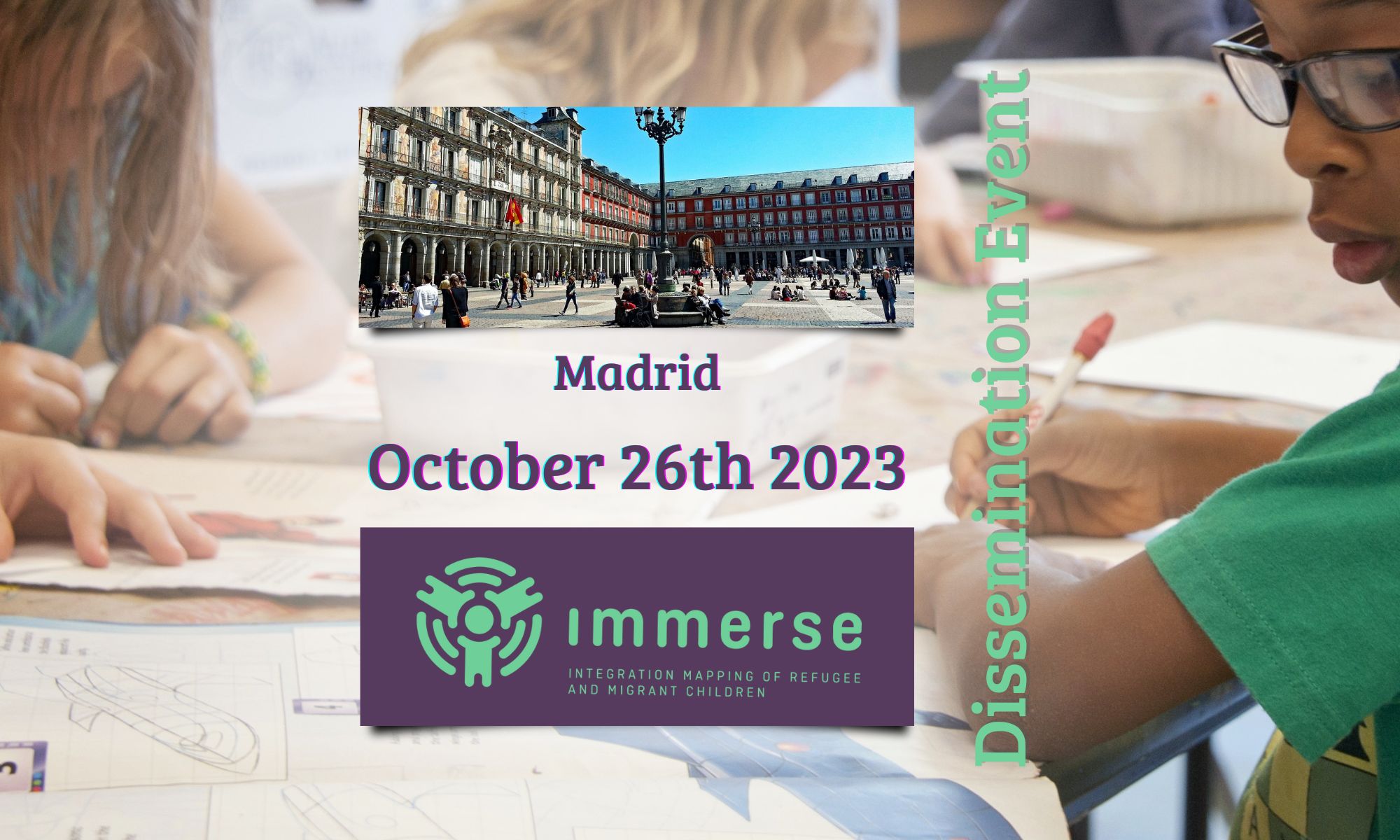
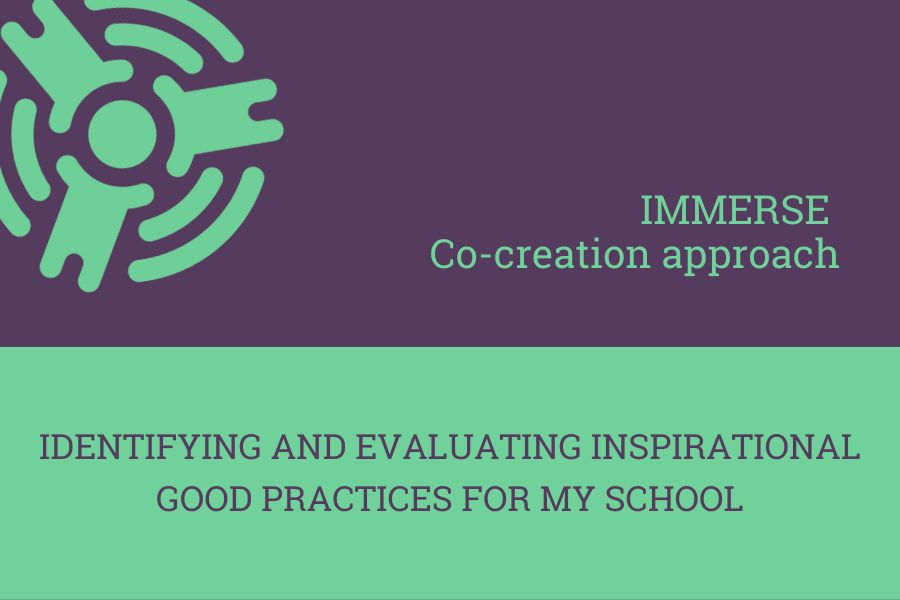
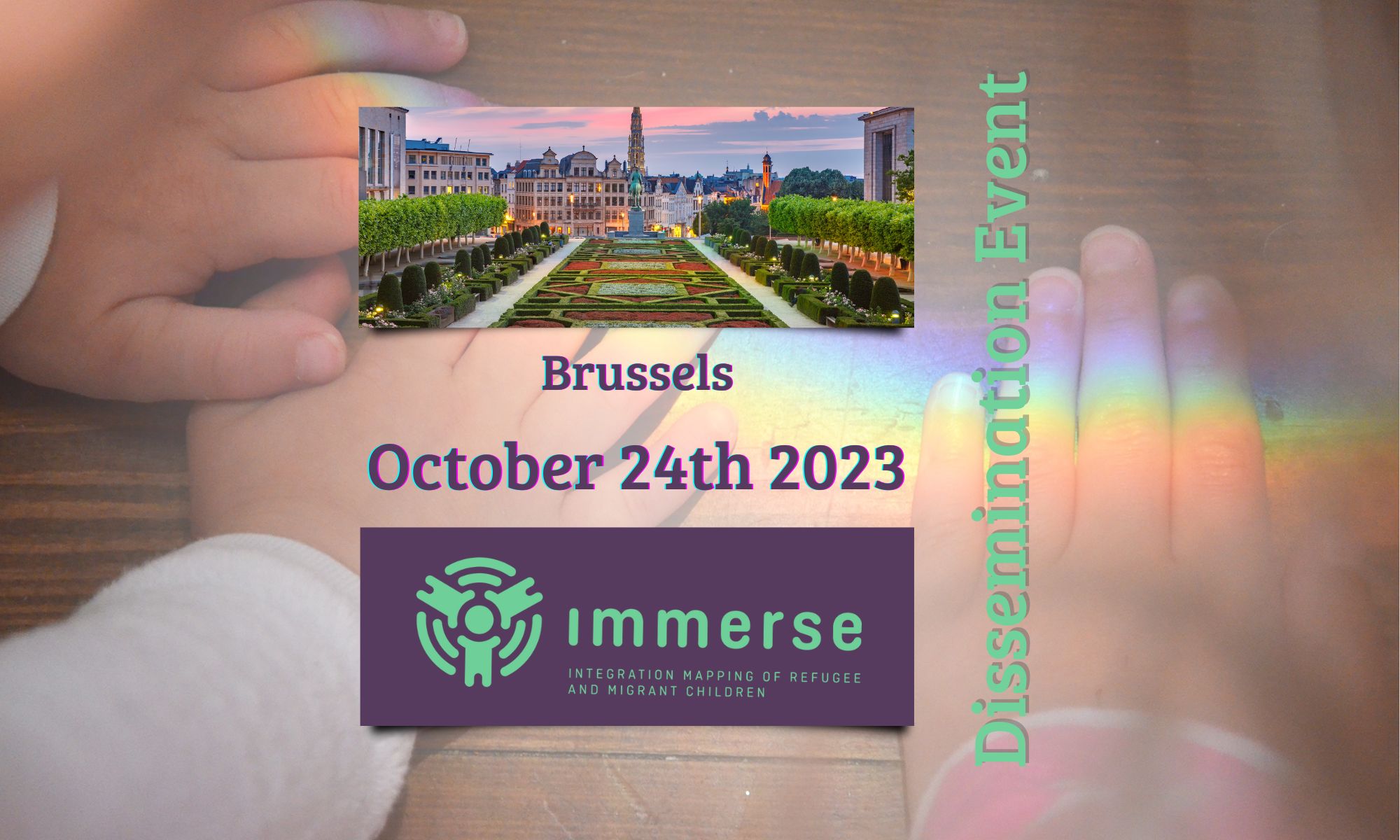
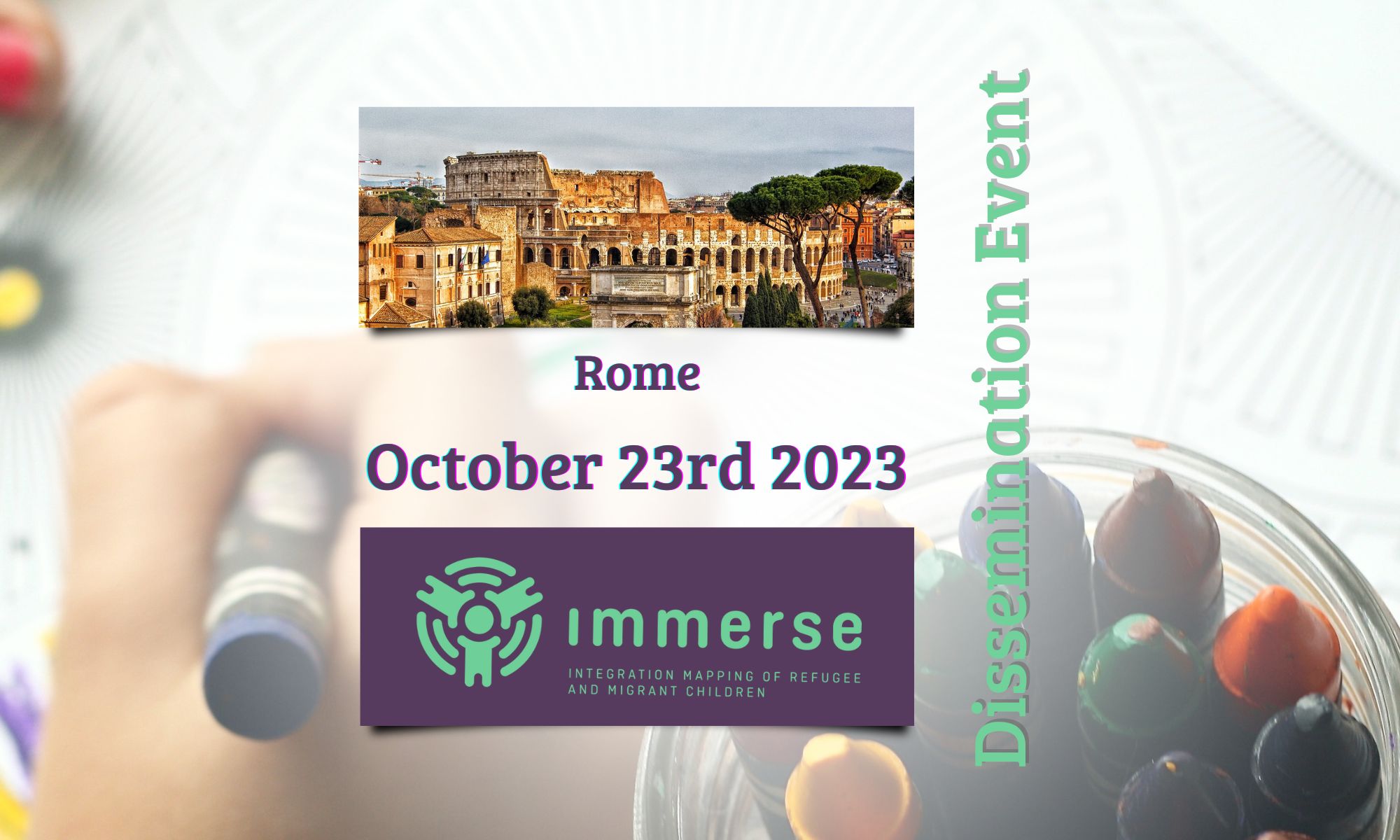
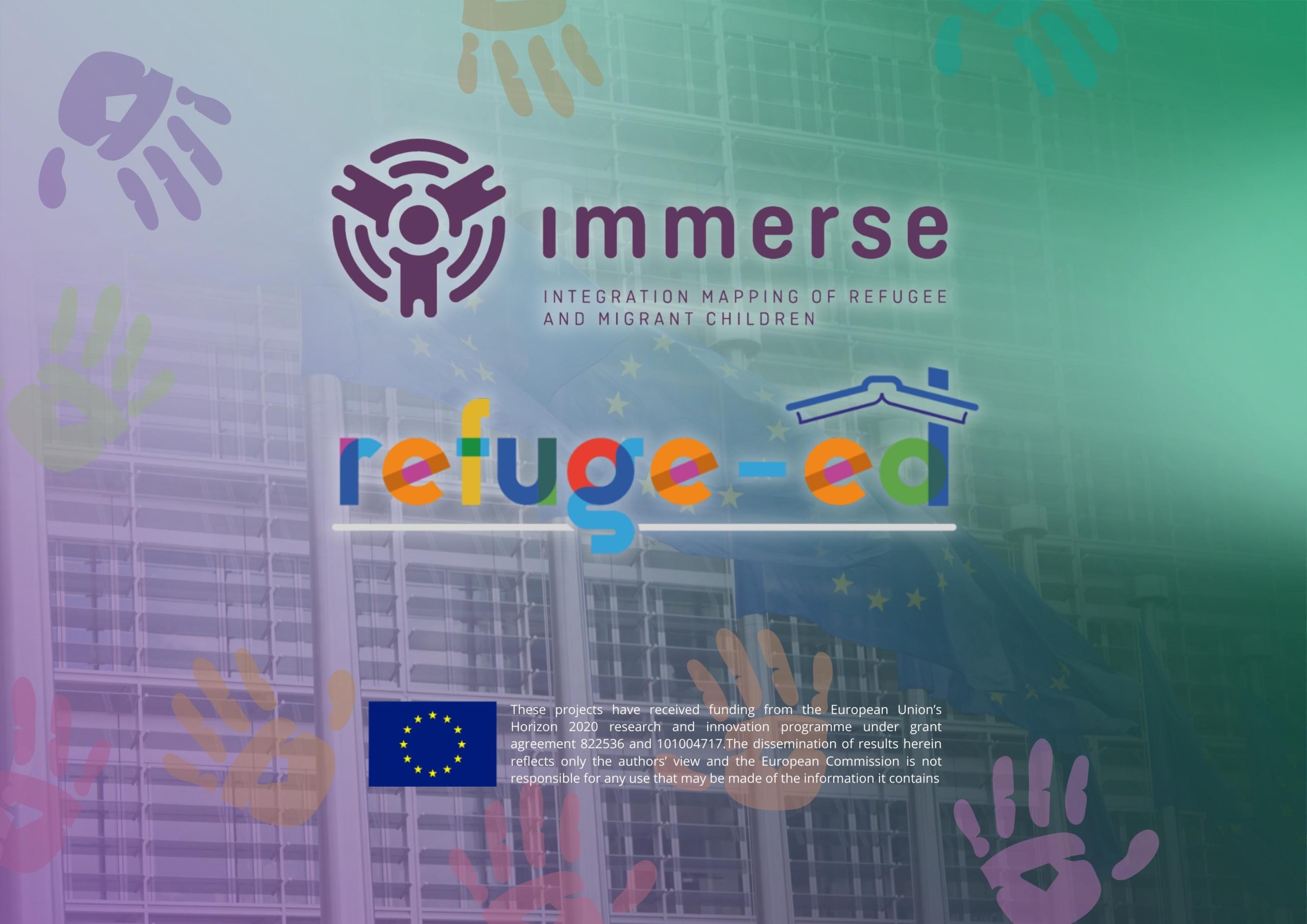
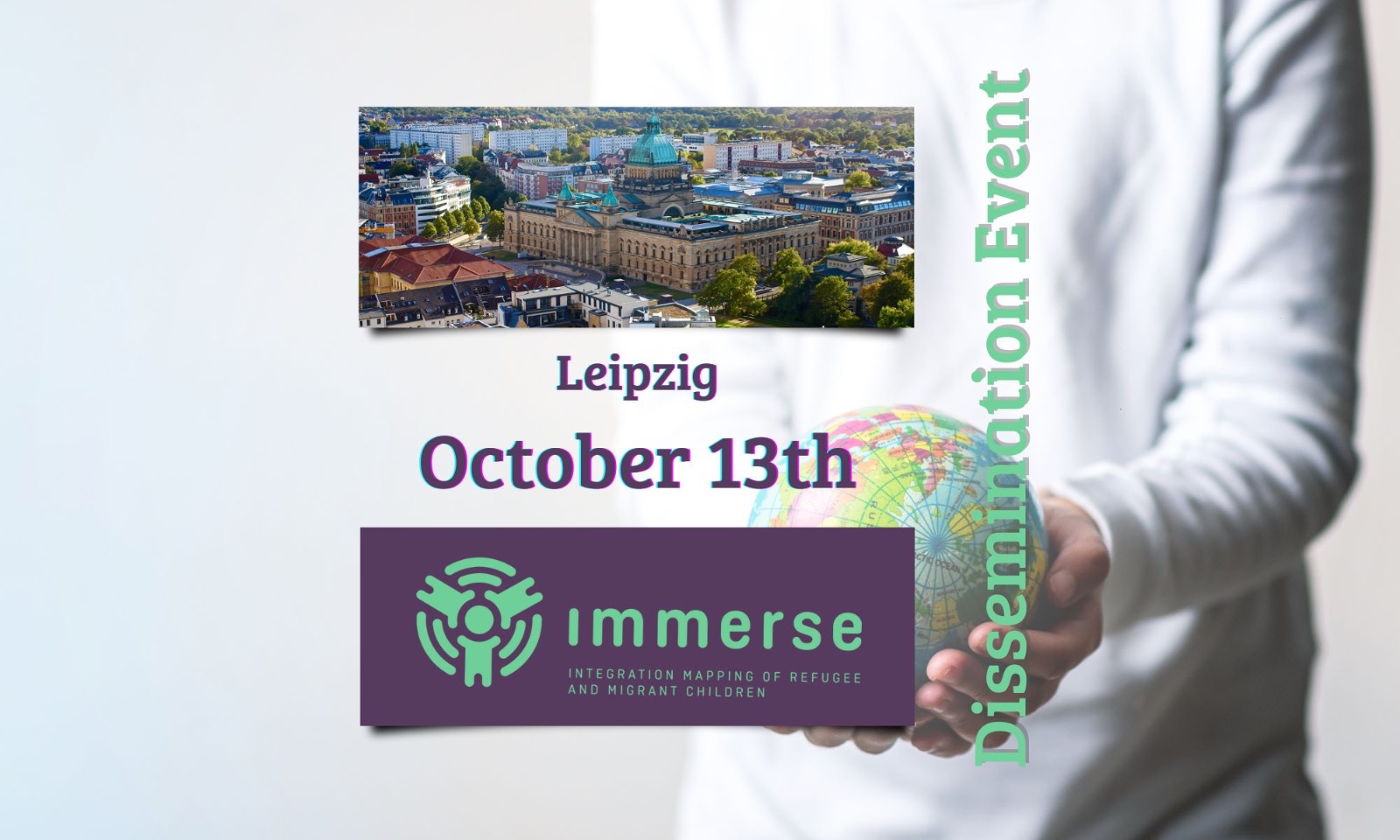
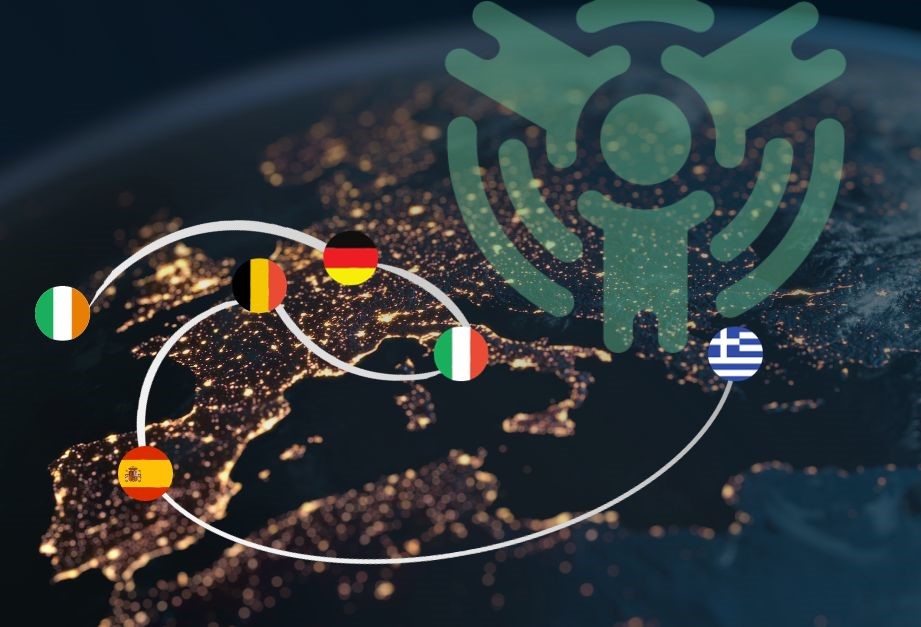
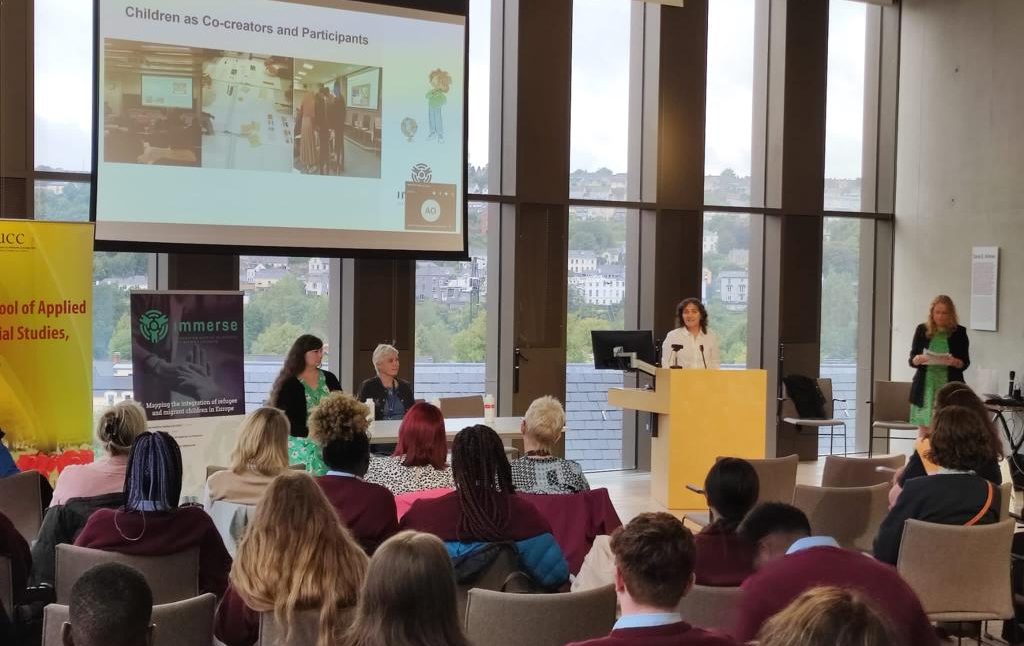
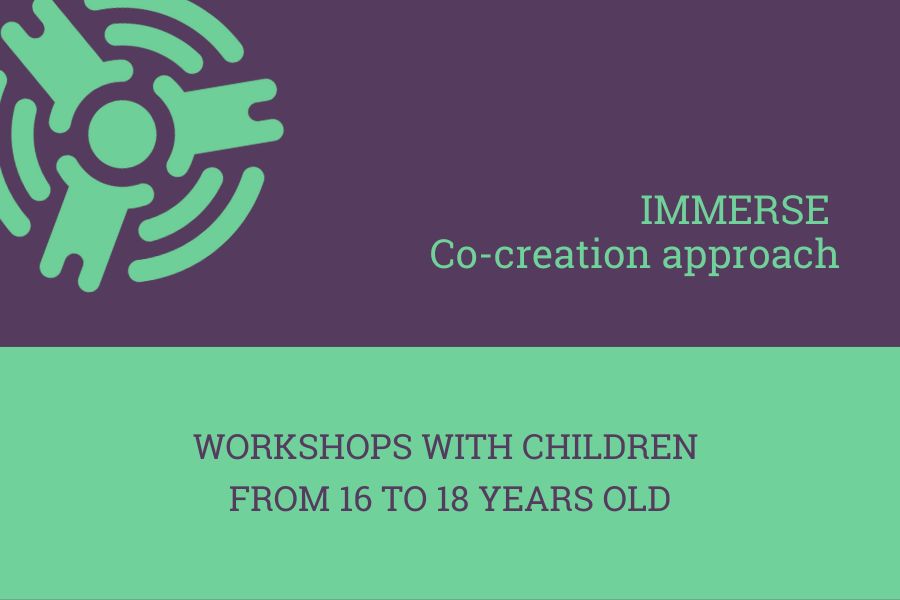
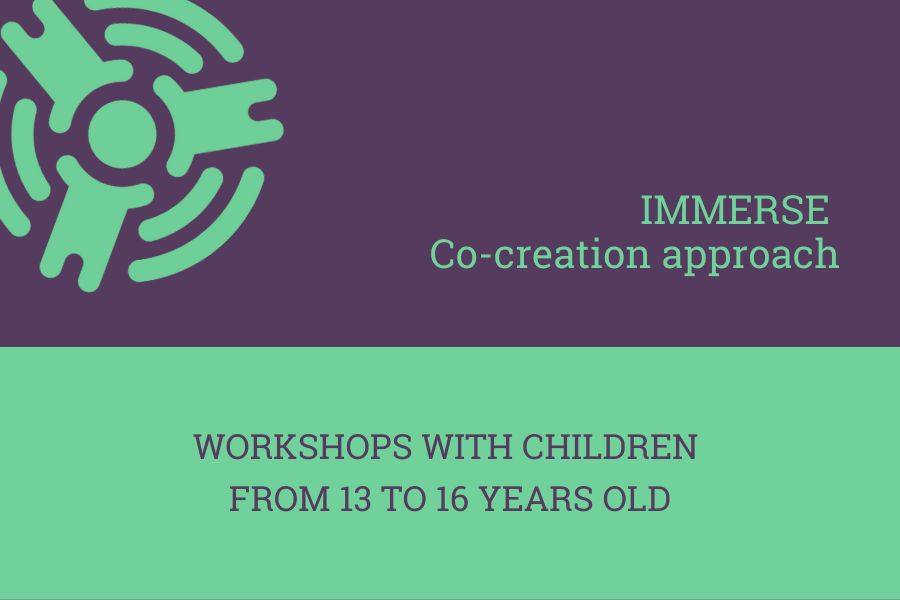
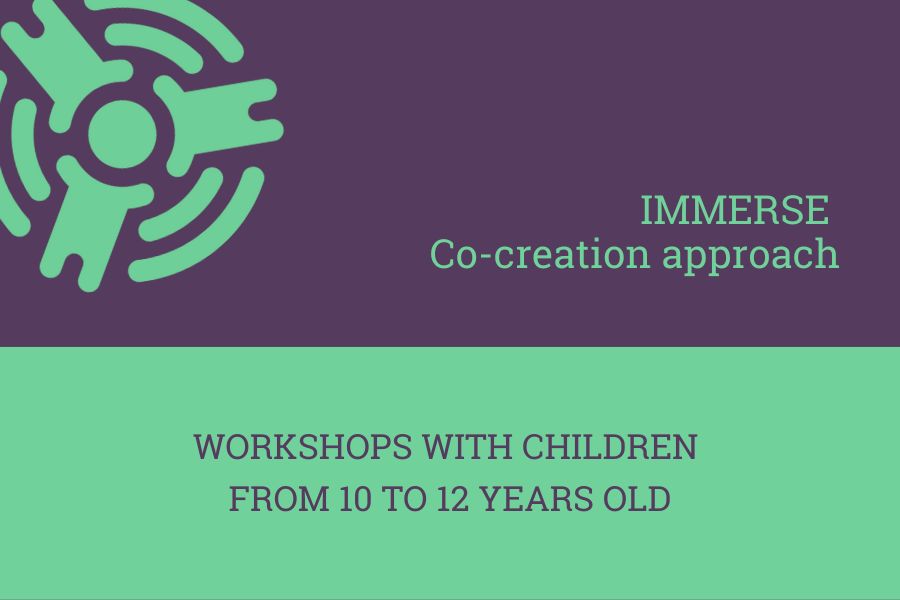
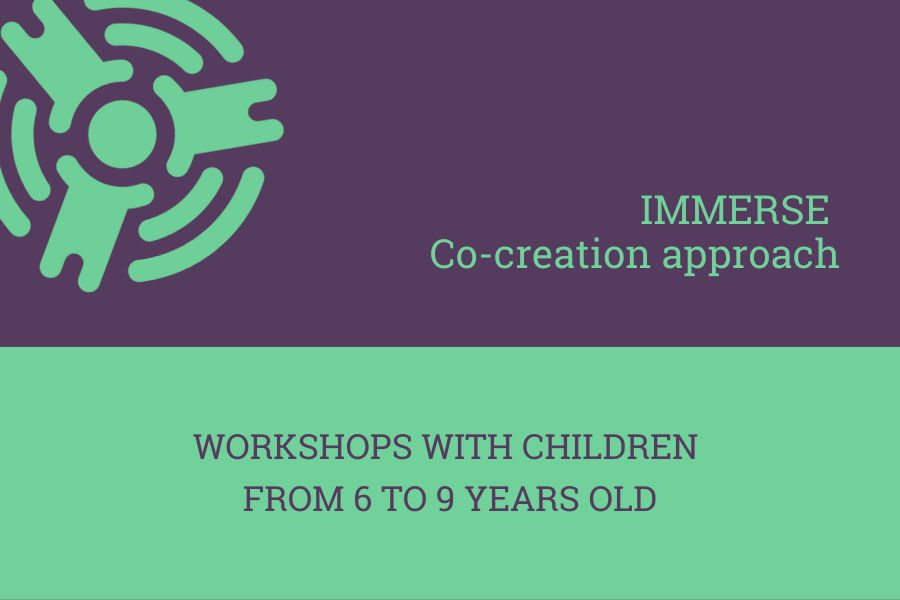

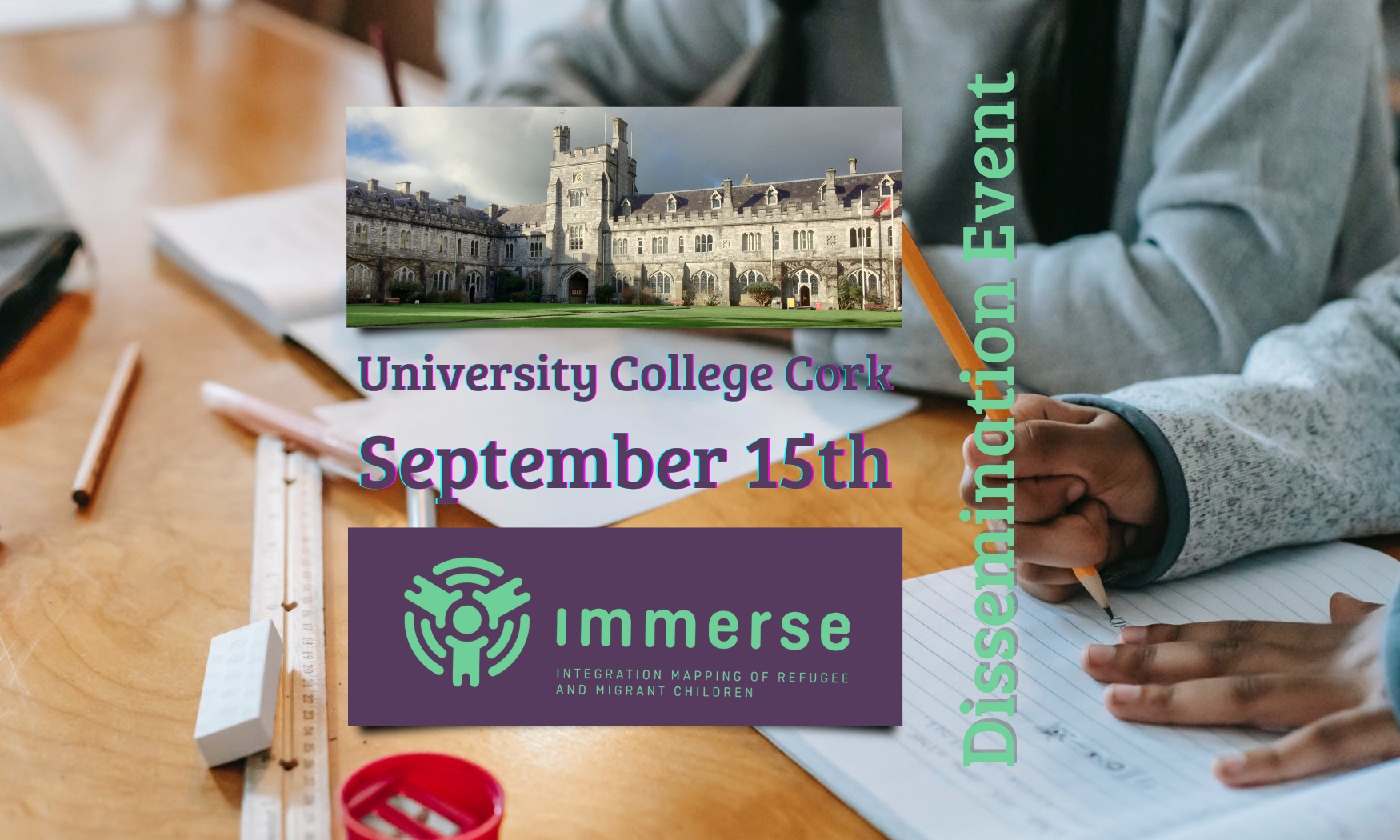
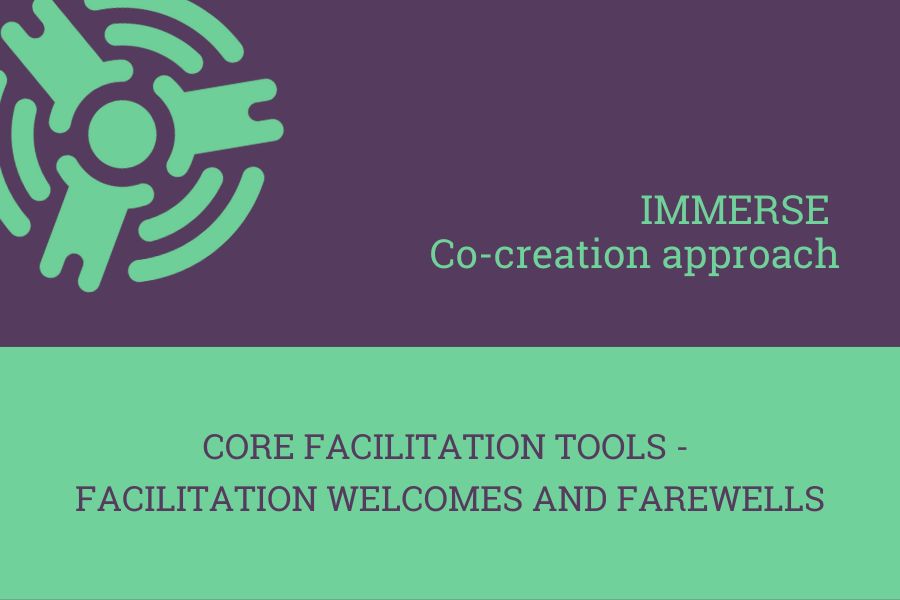
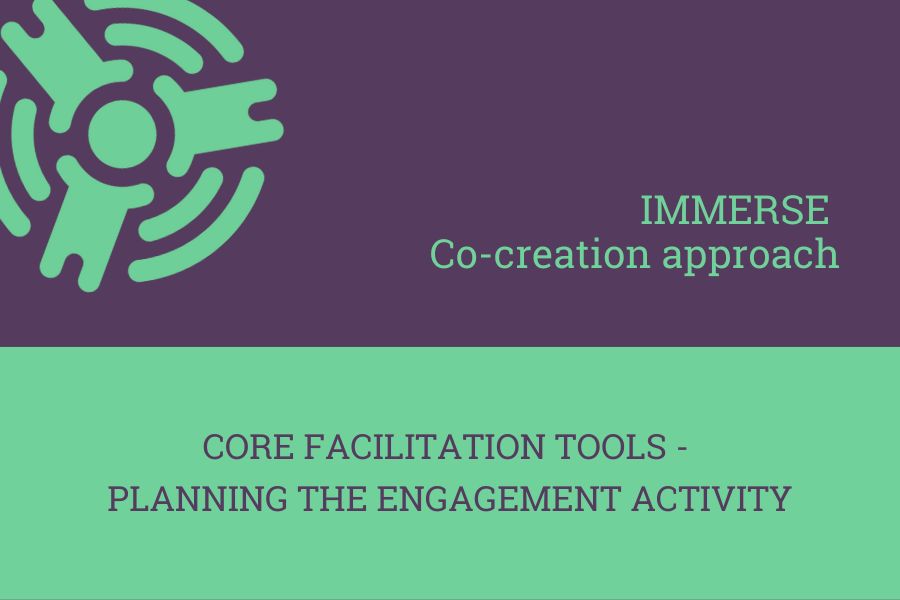
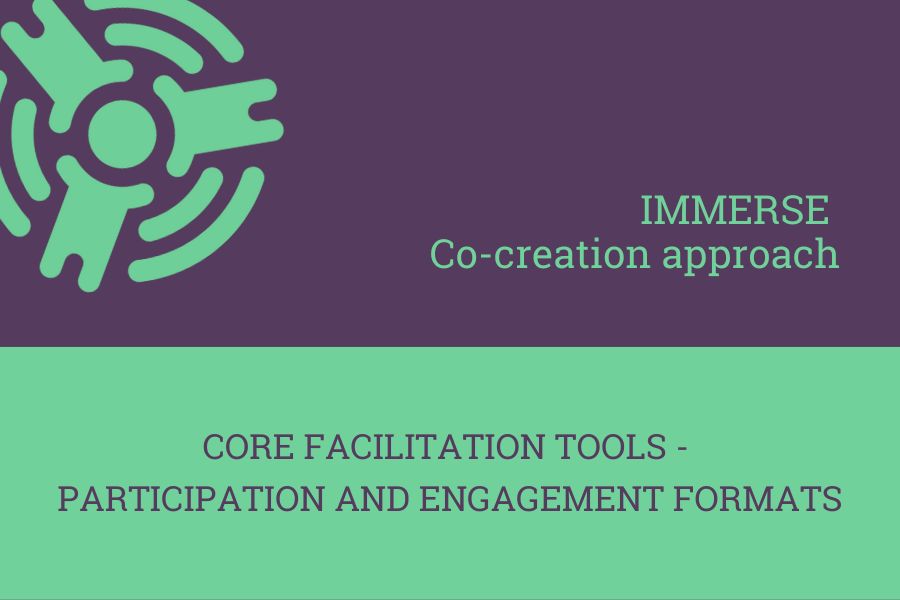
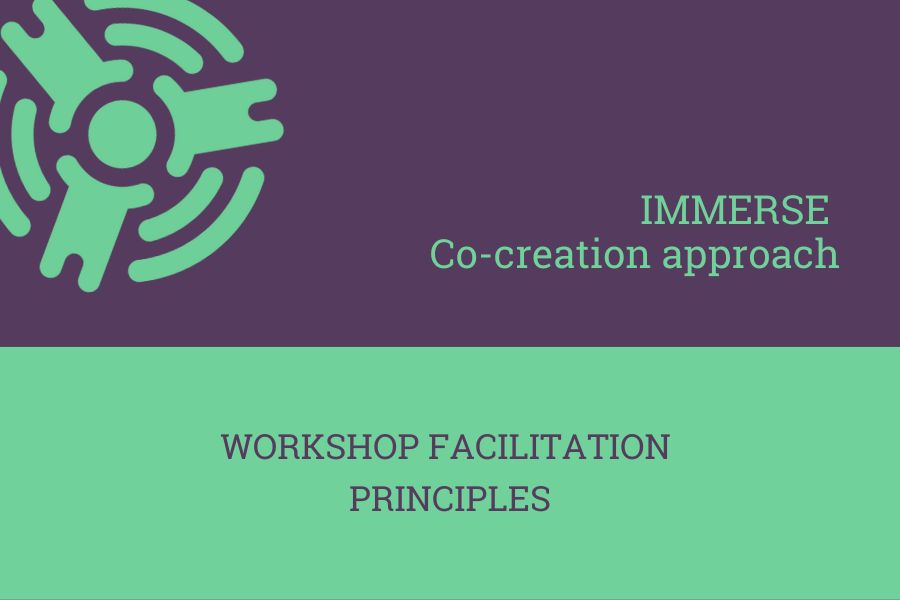
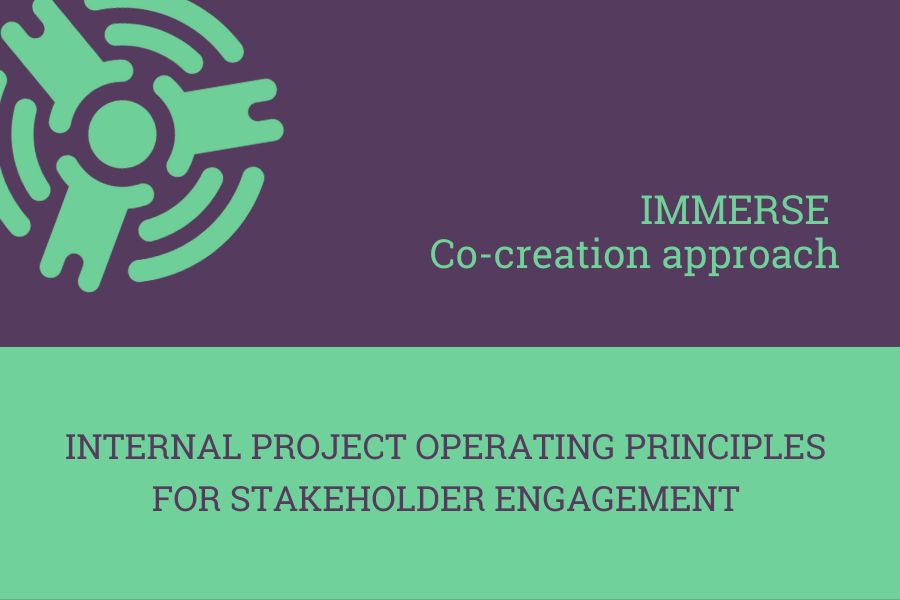
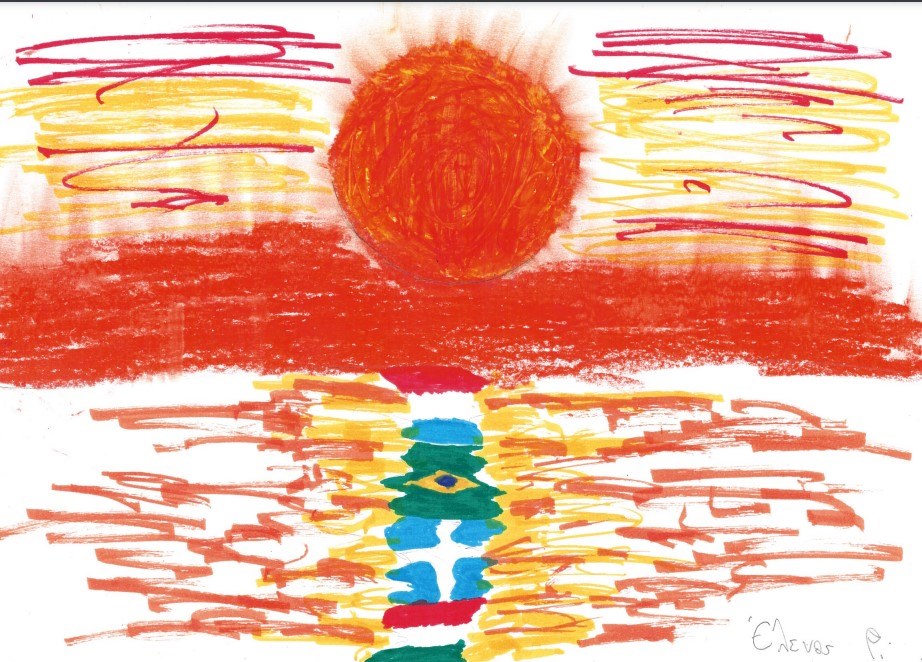
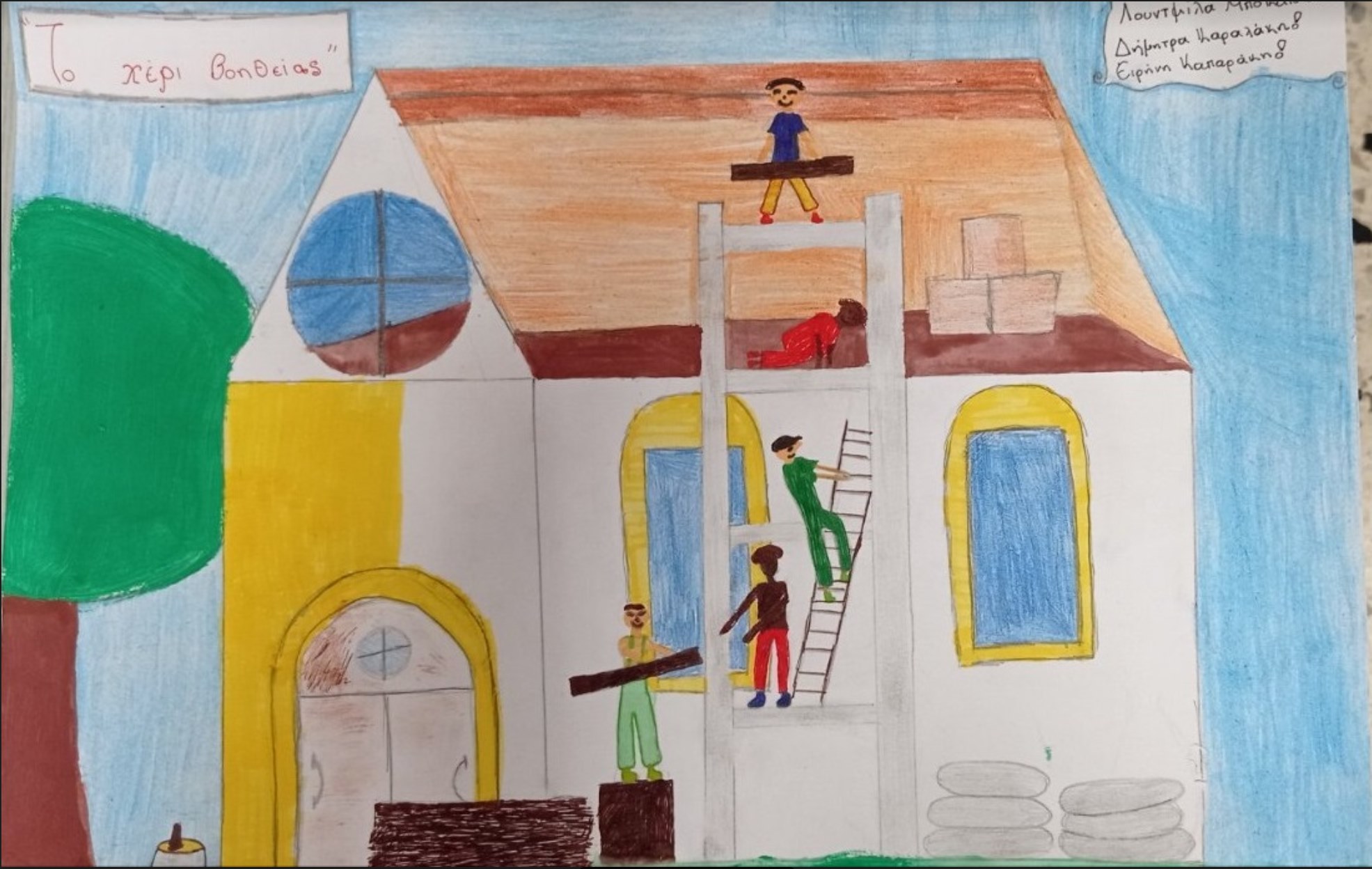
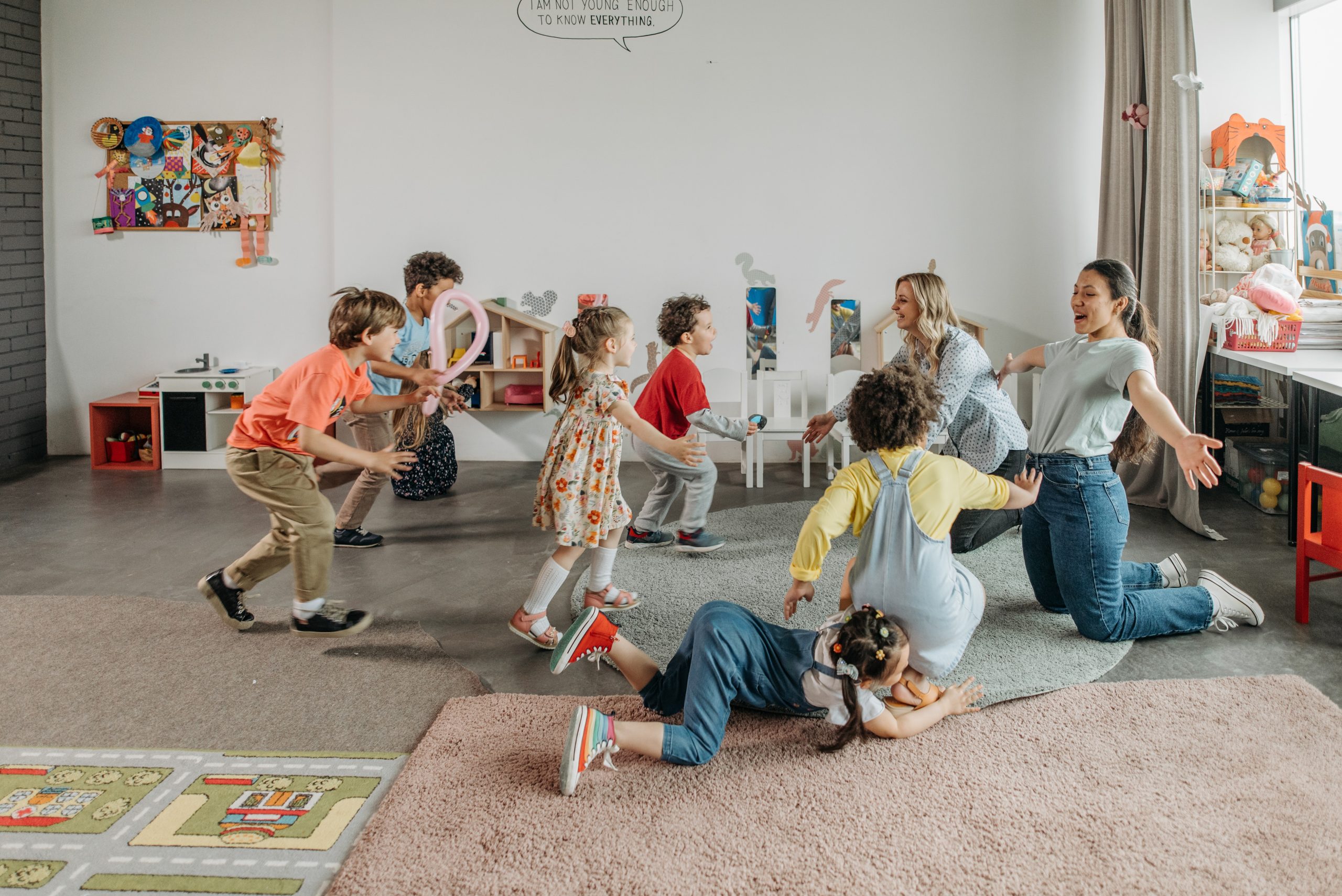


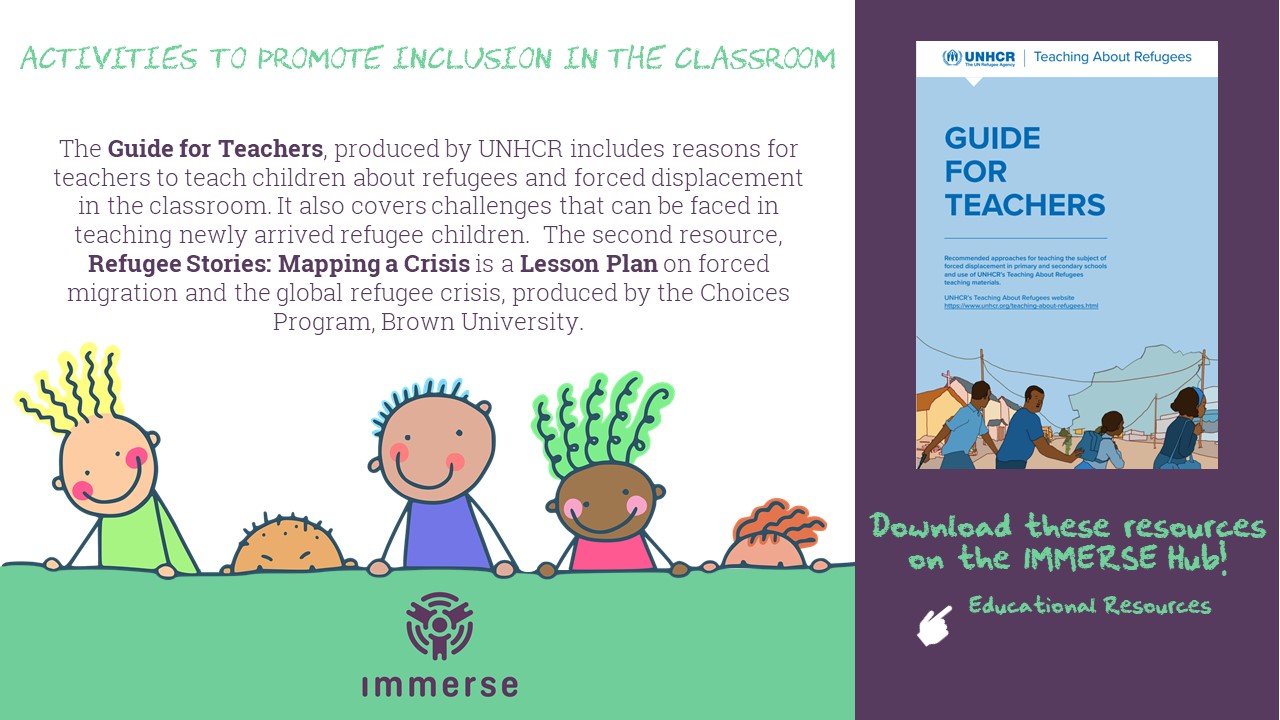

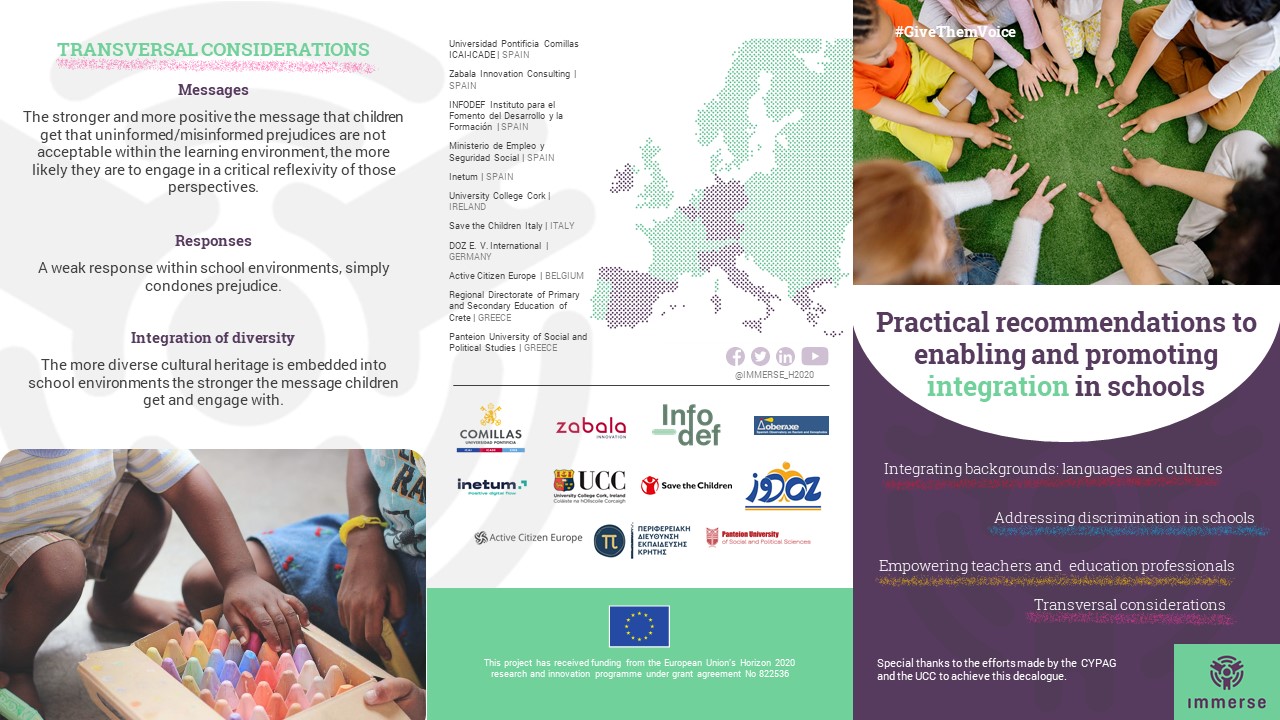
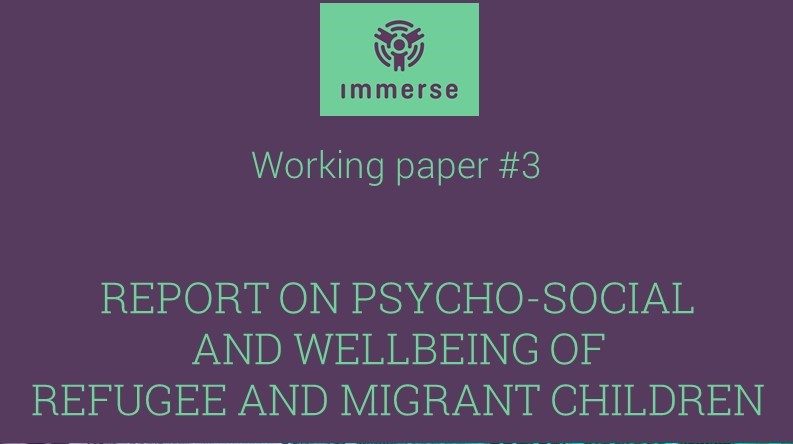
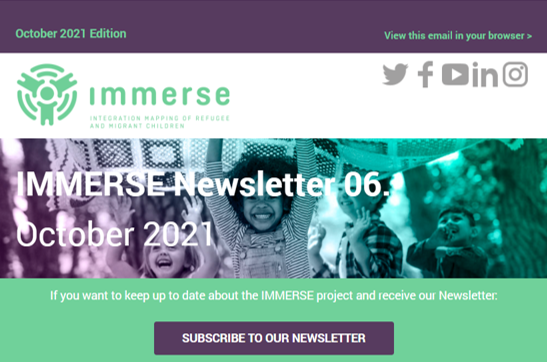

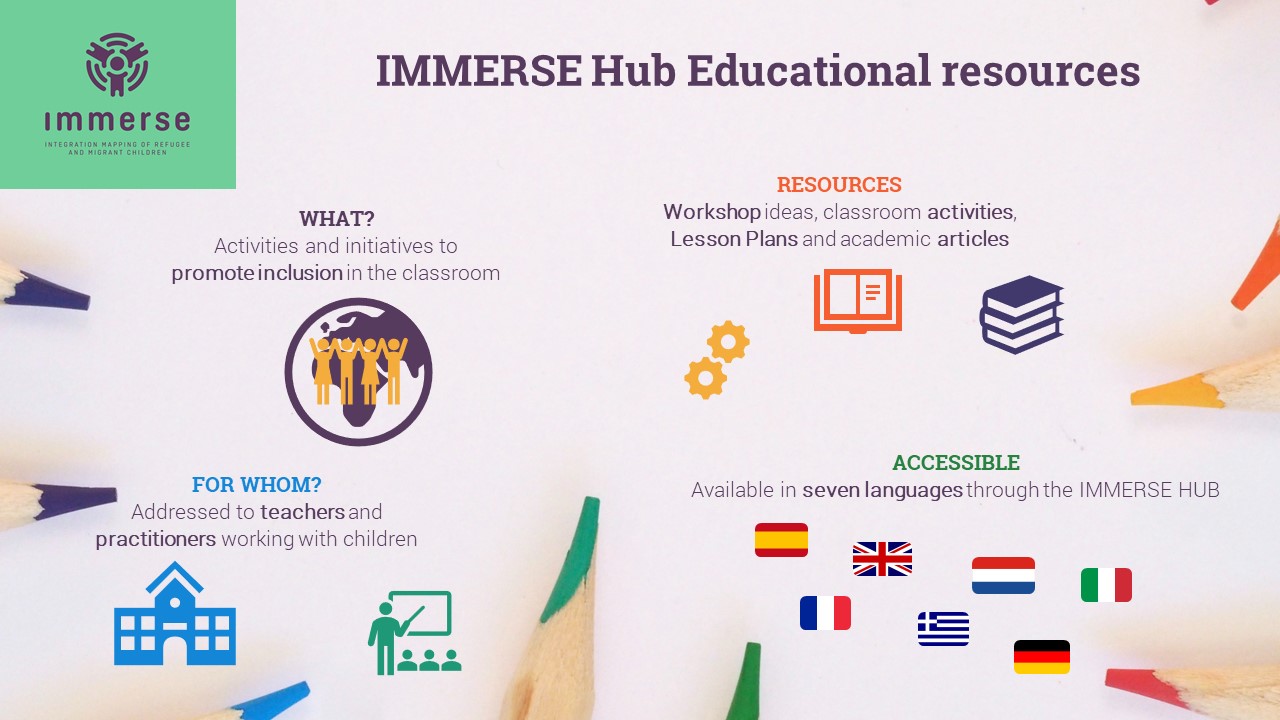
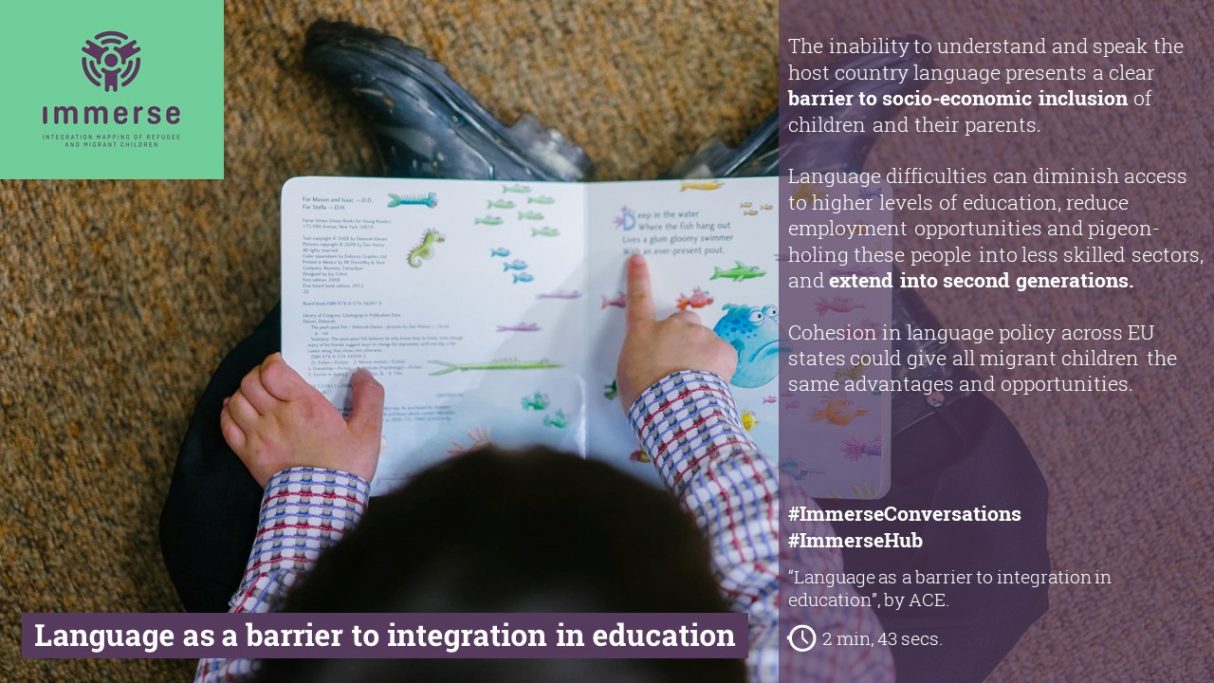
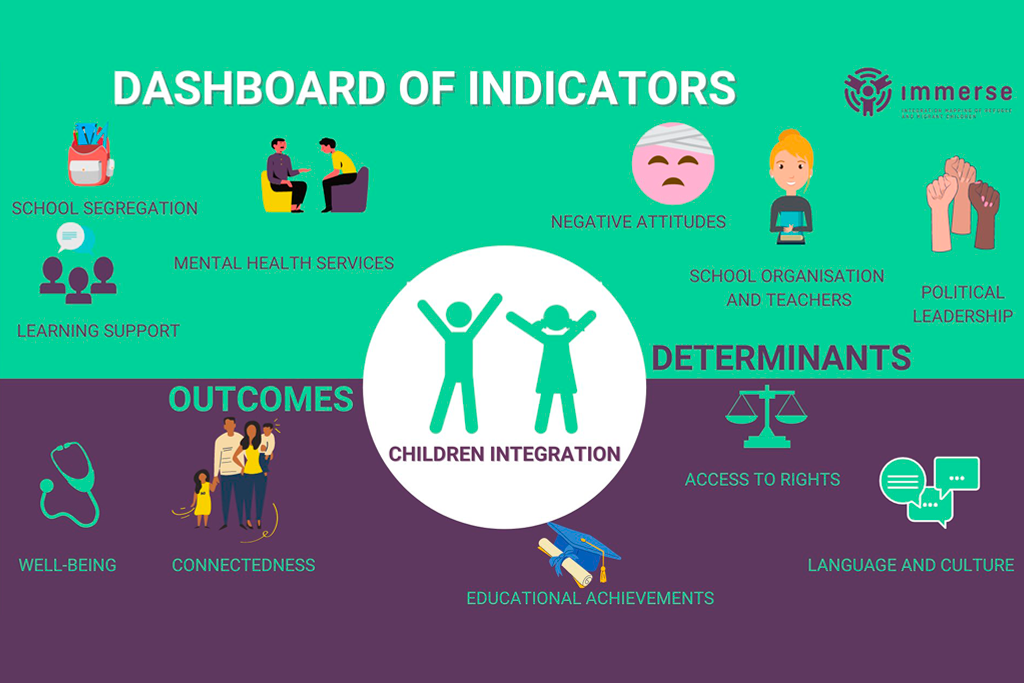
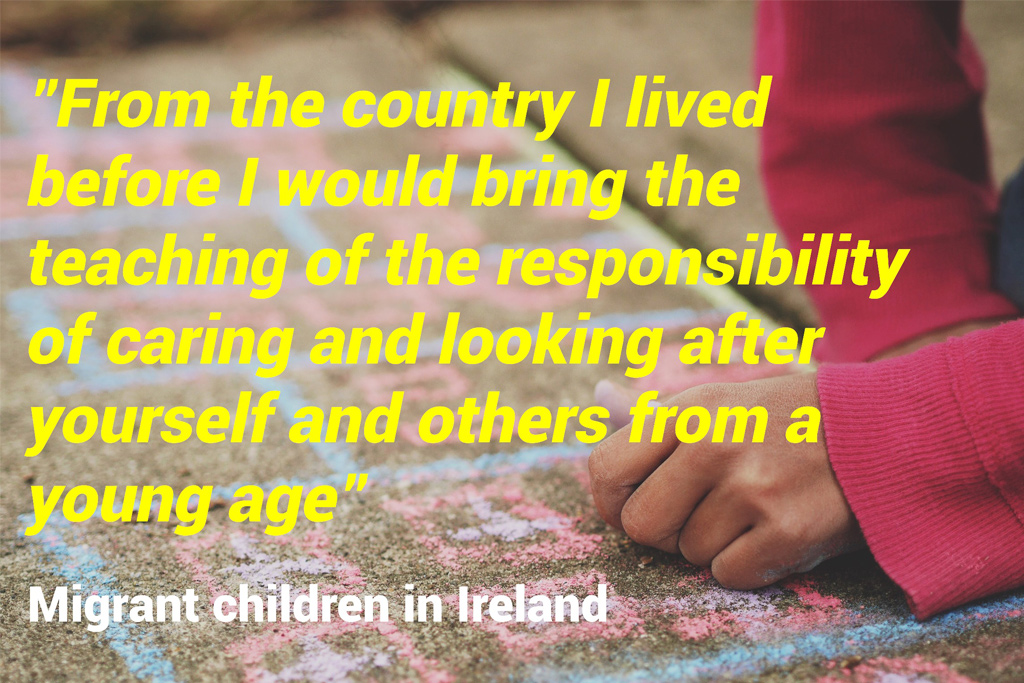
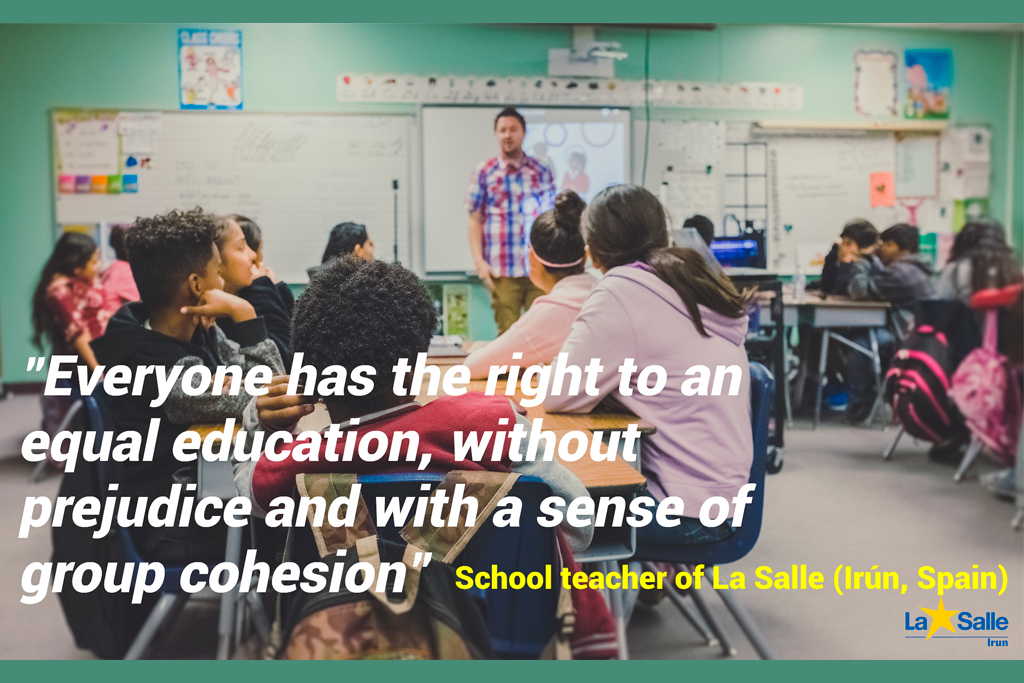
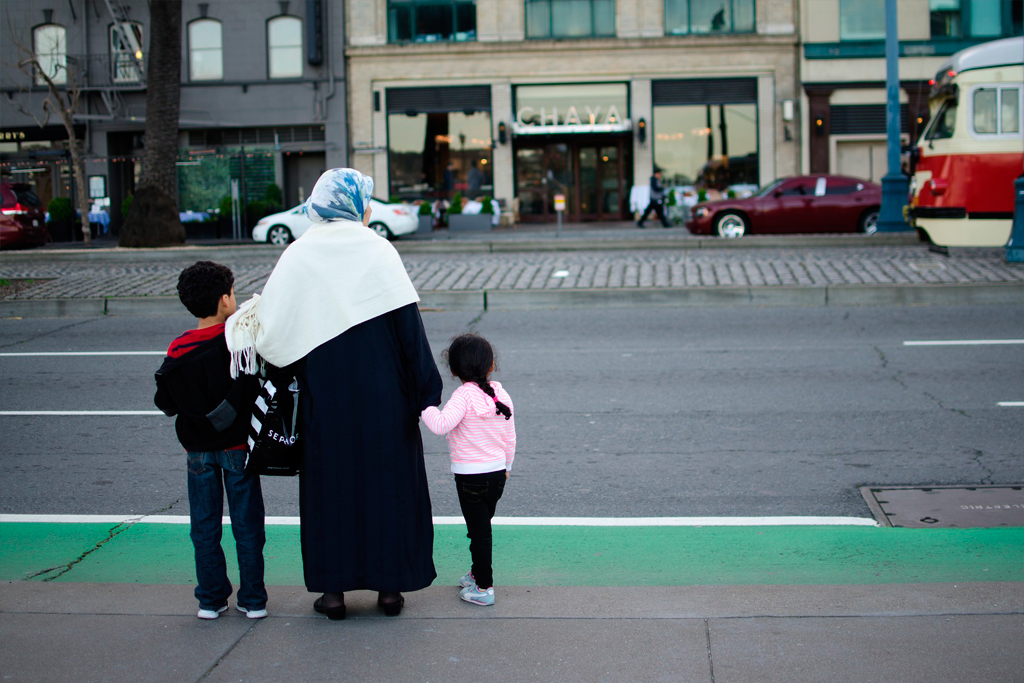
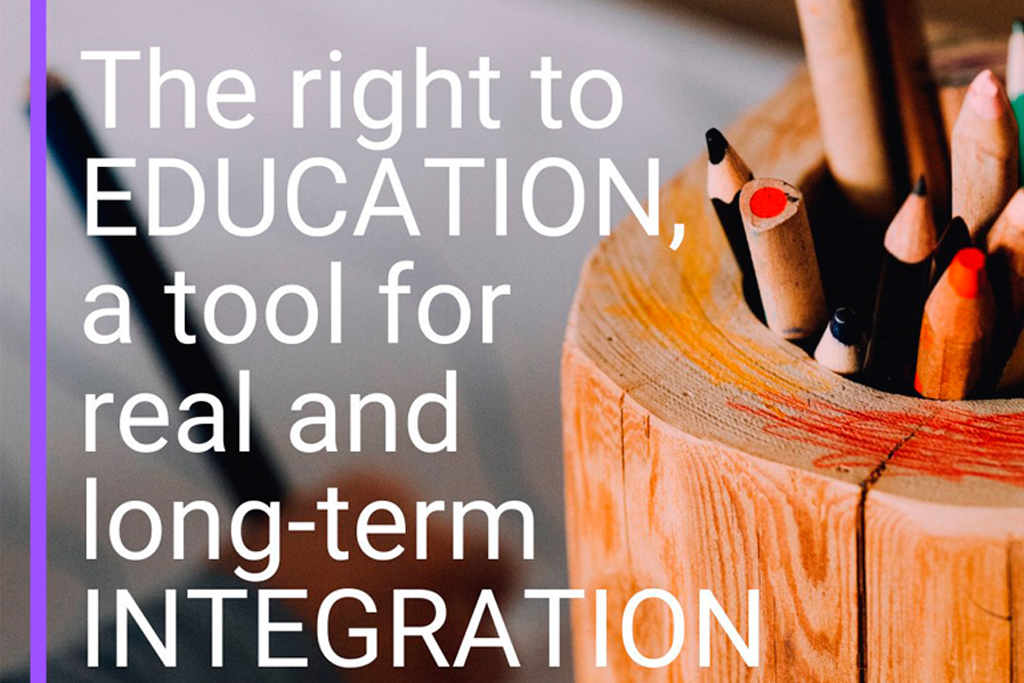
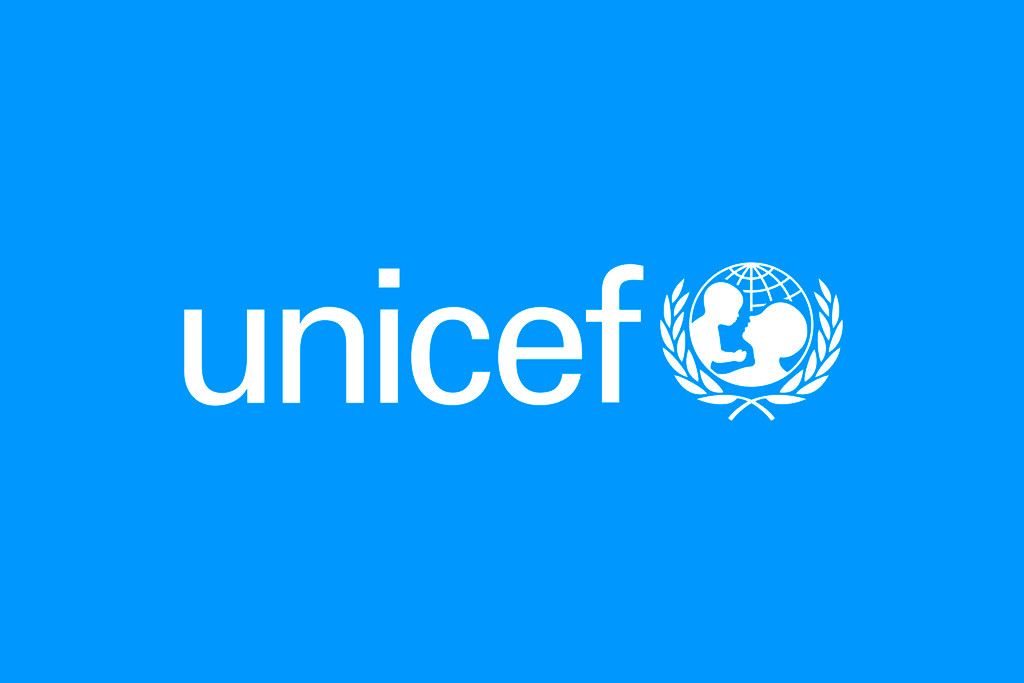
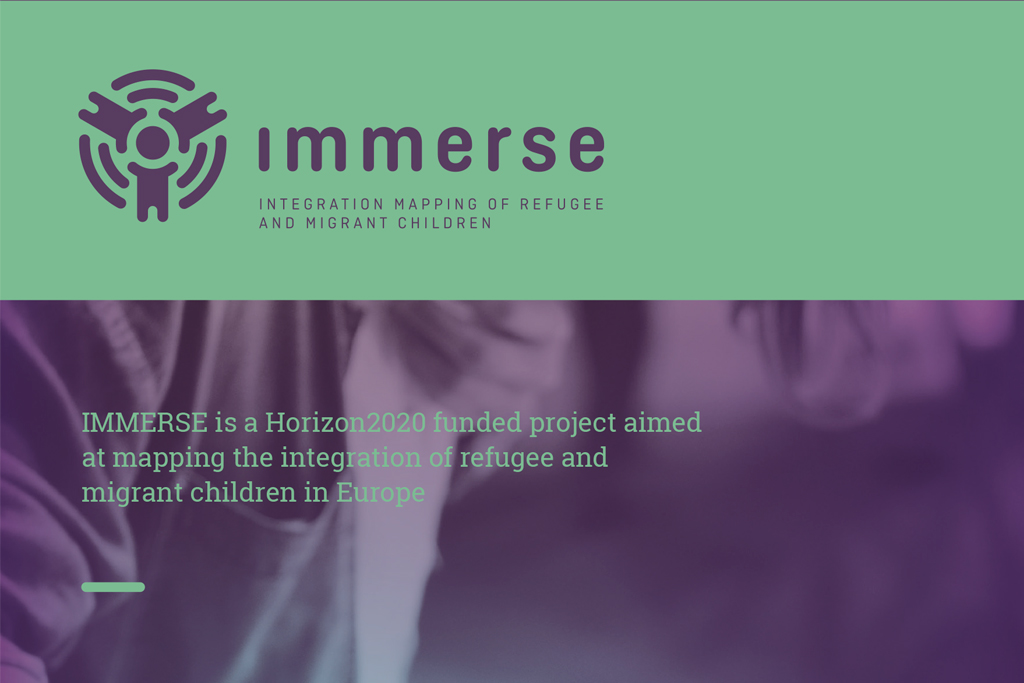
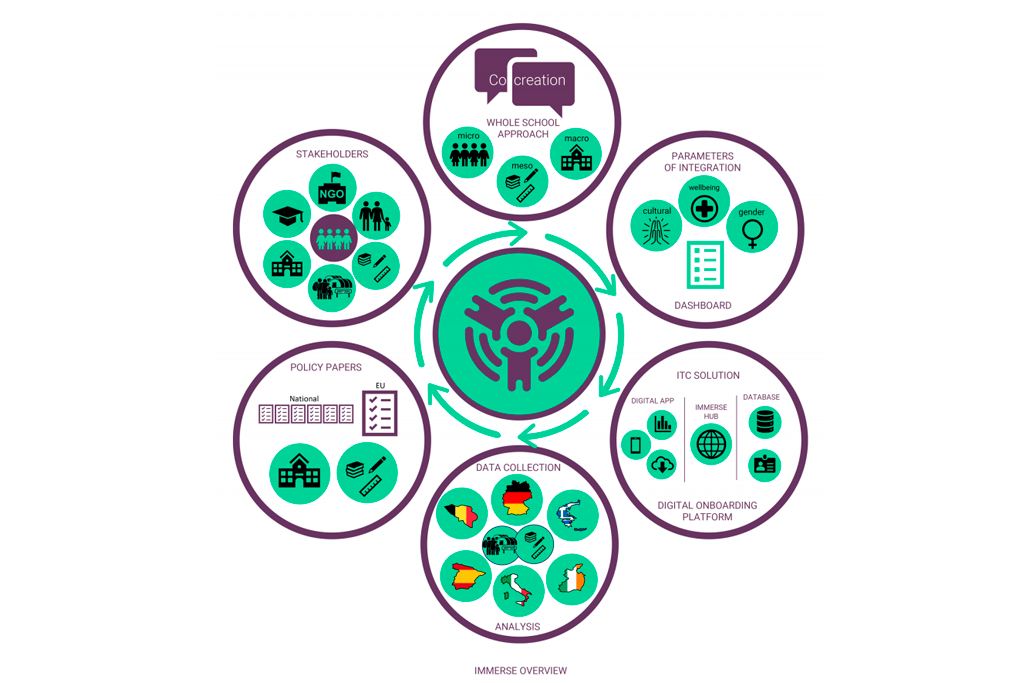
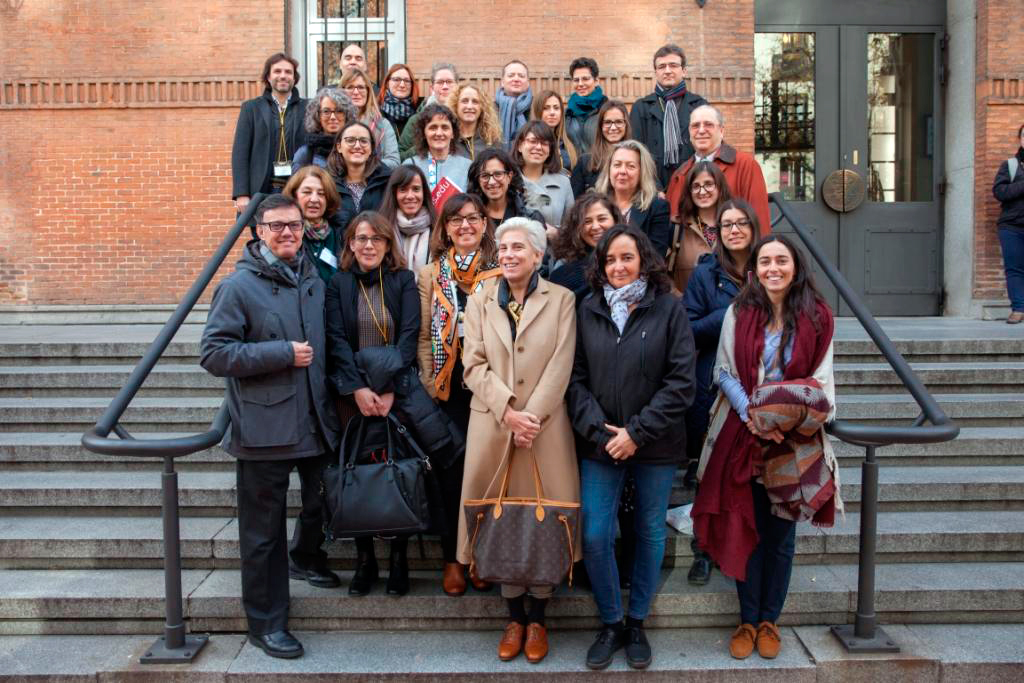
Follow Us